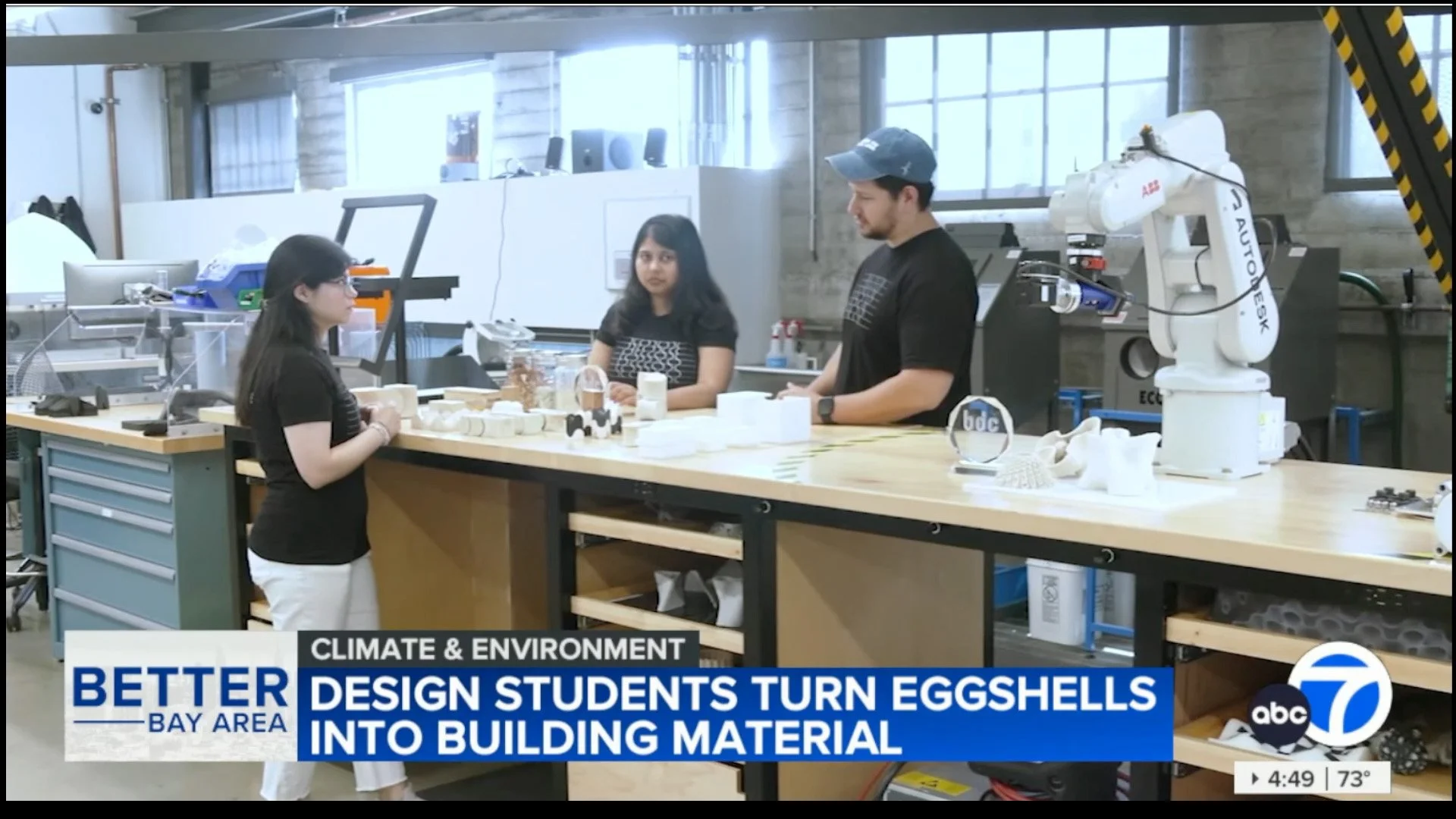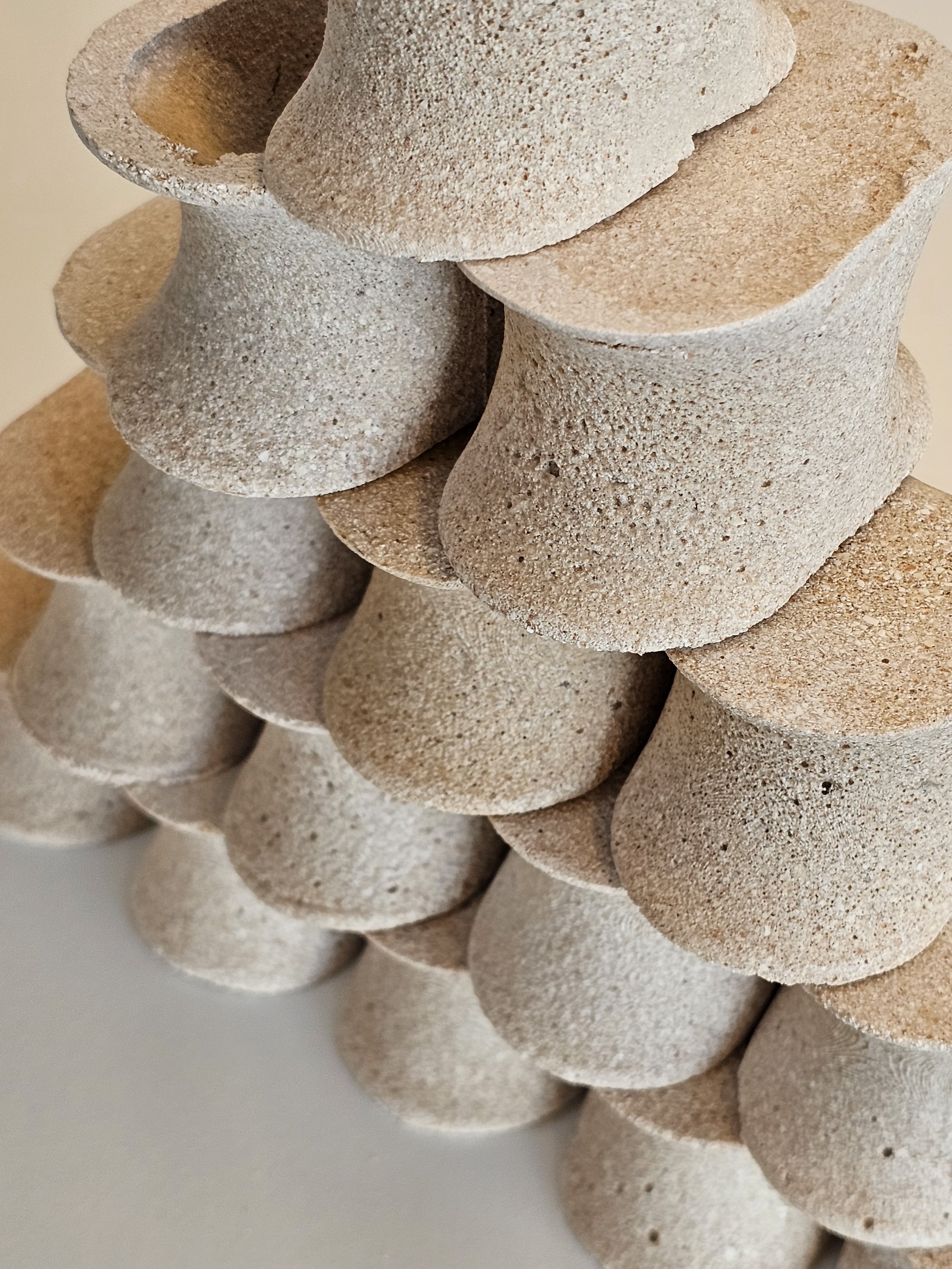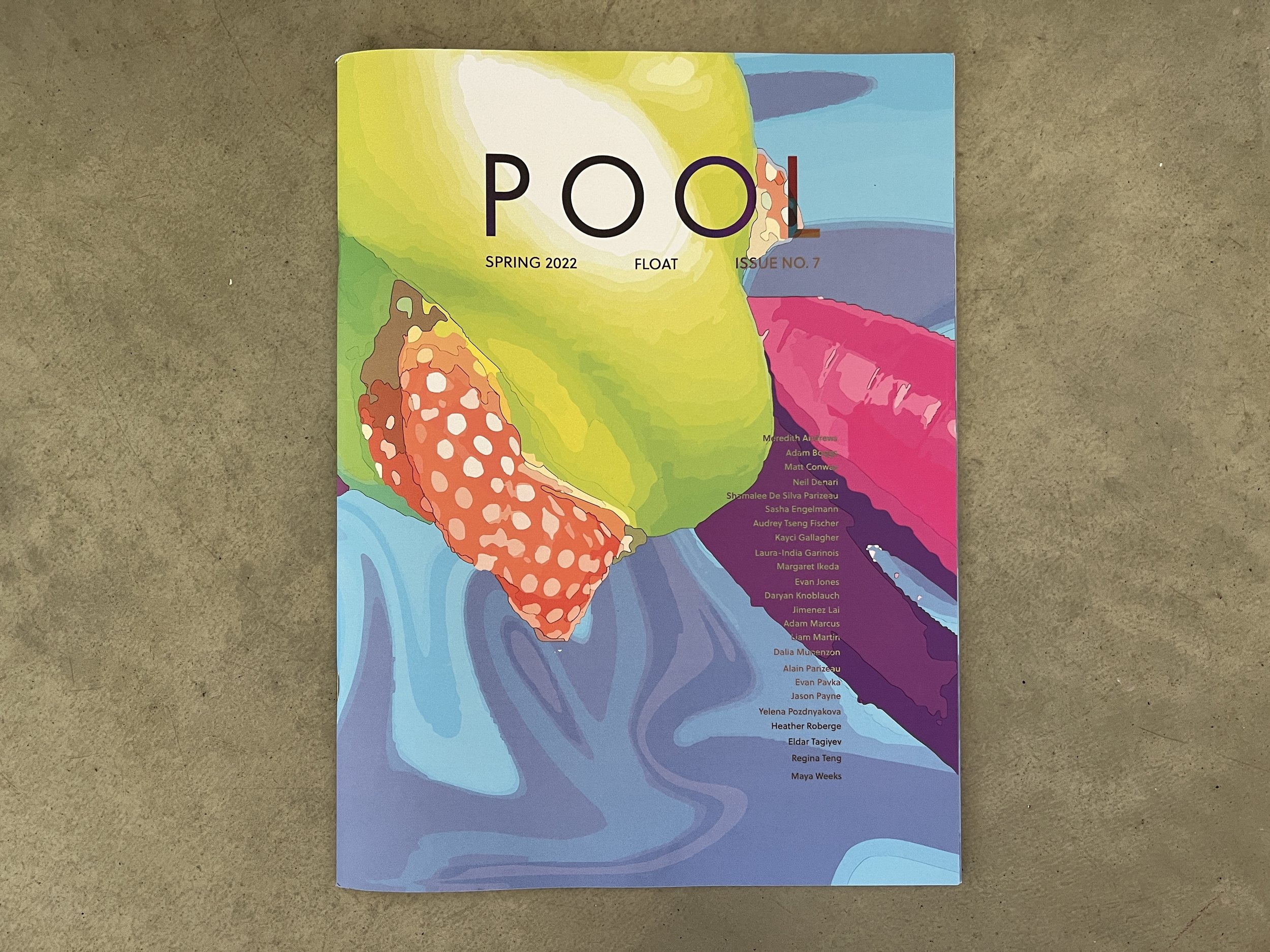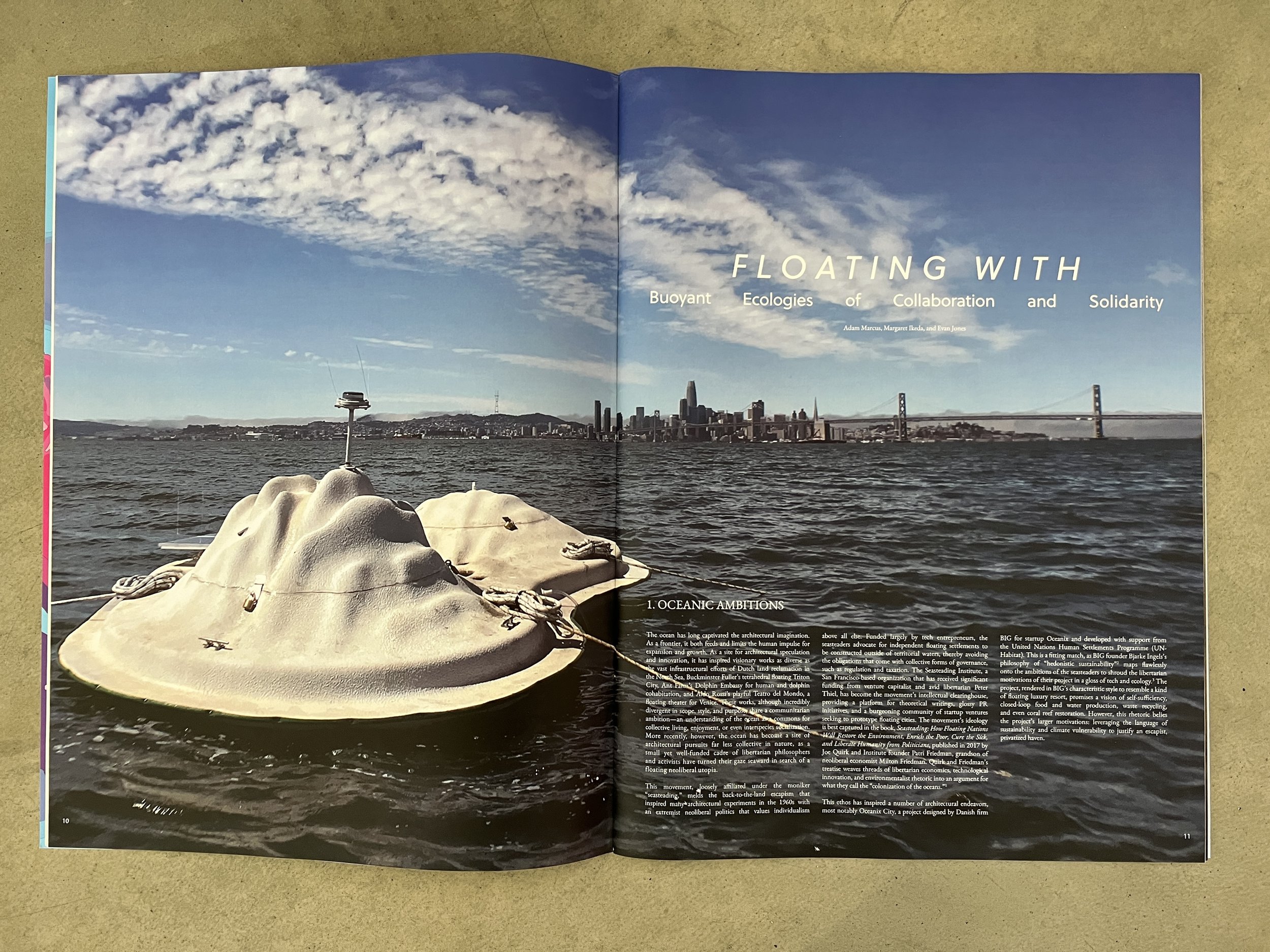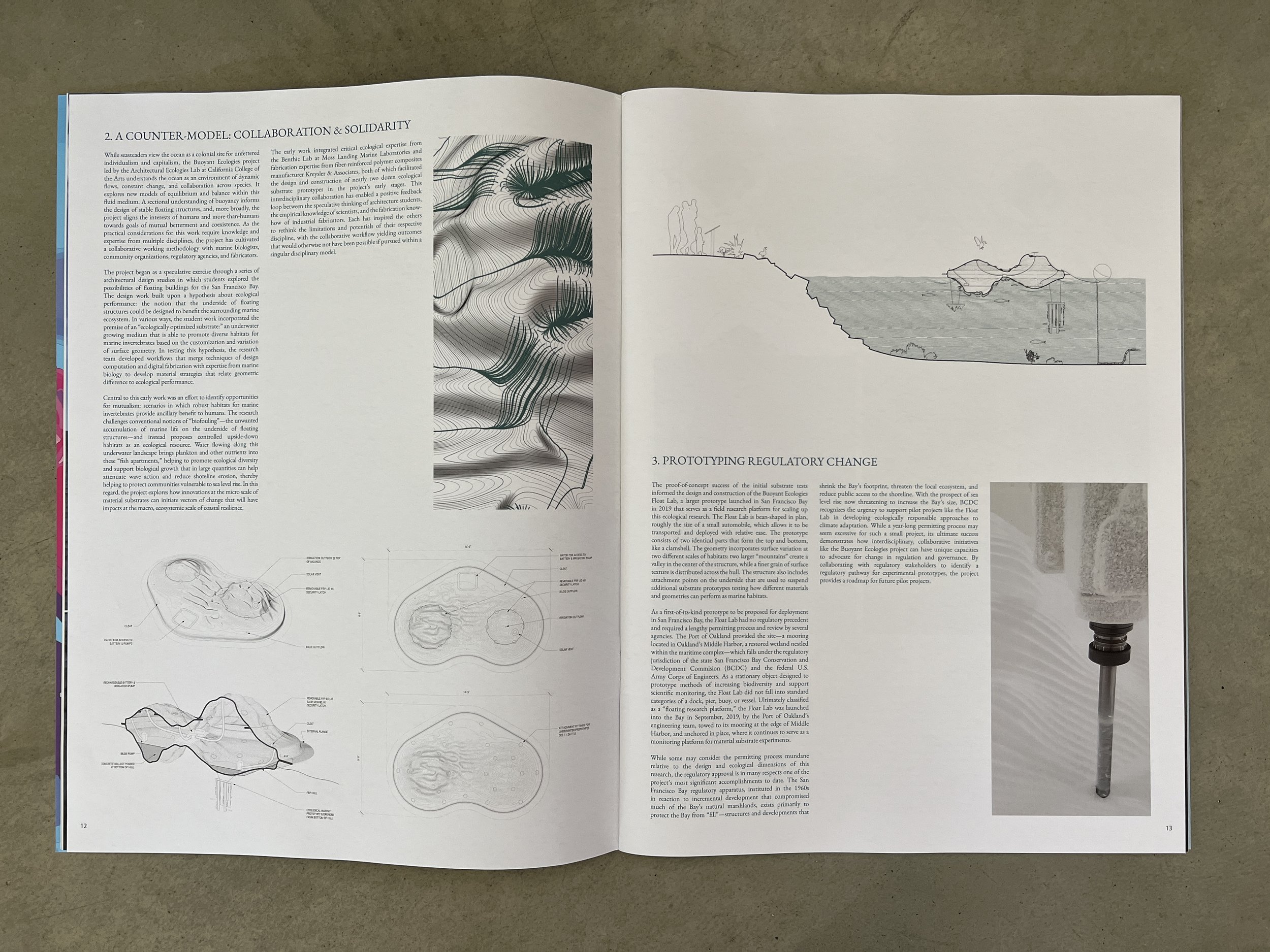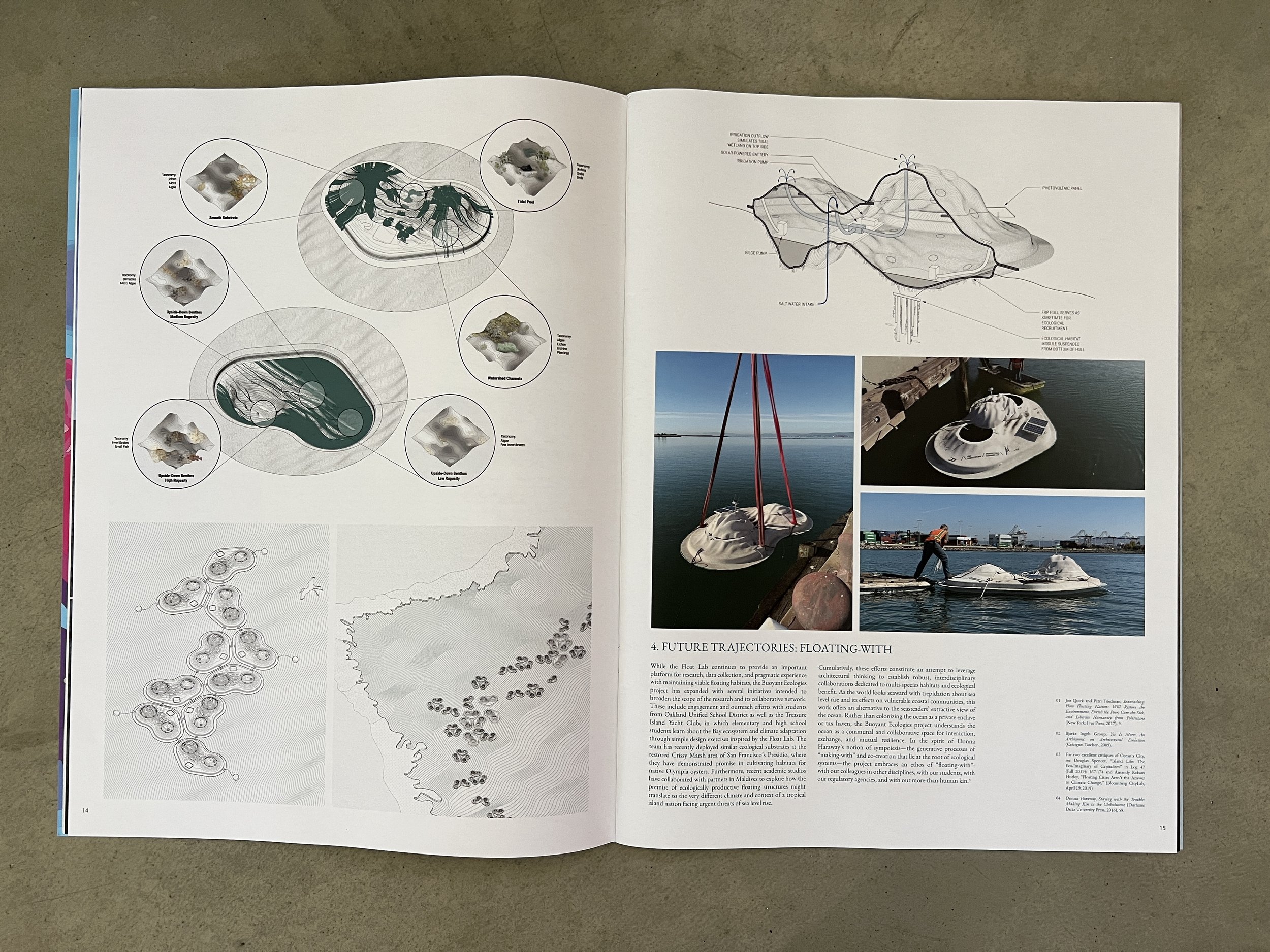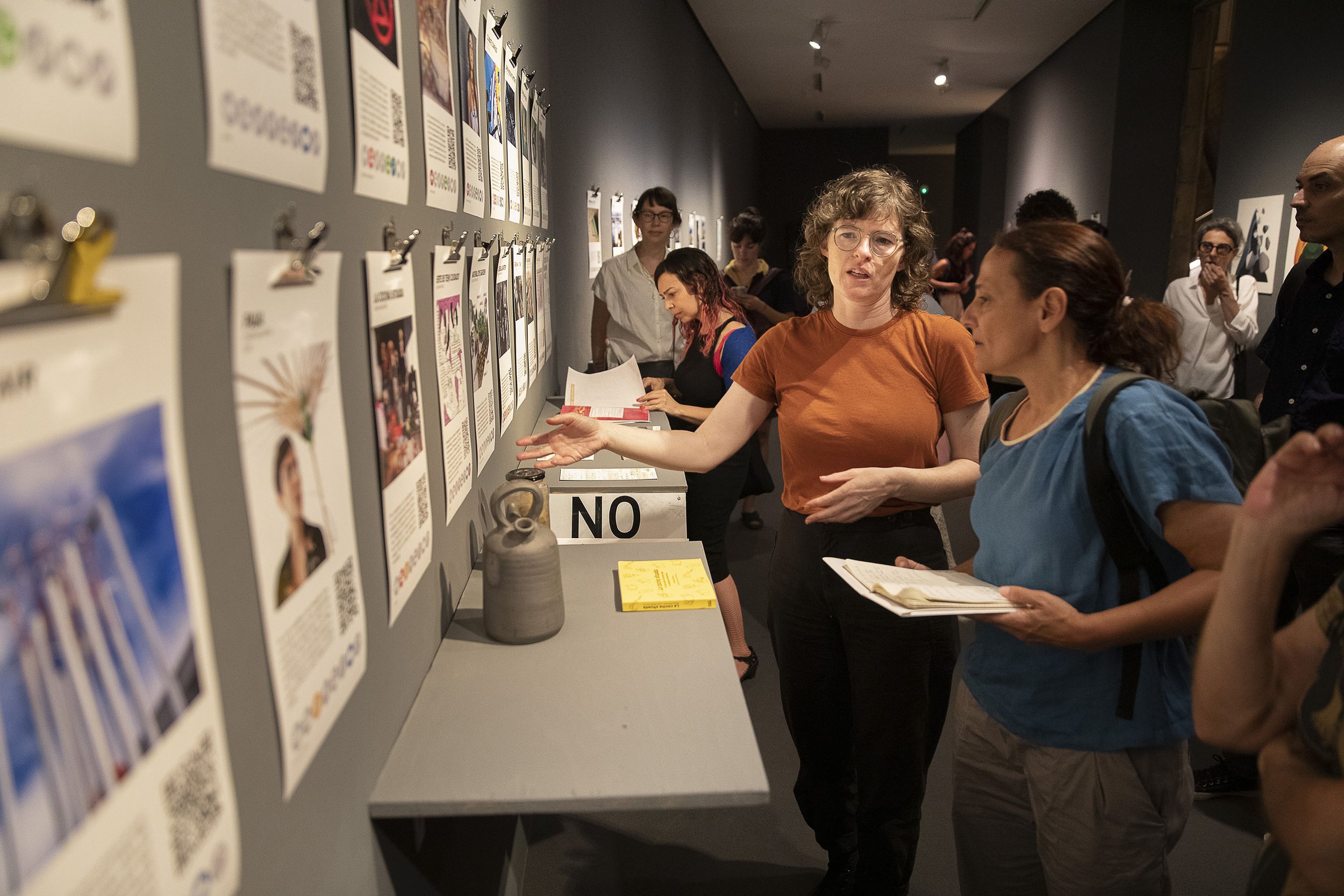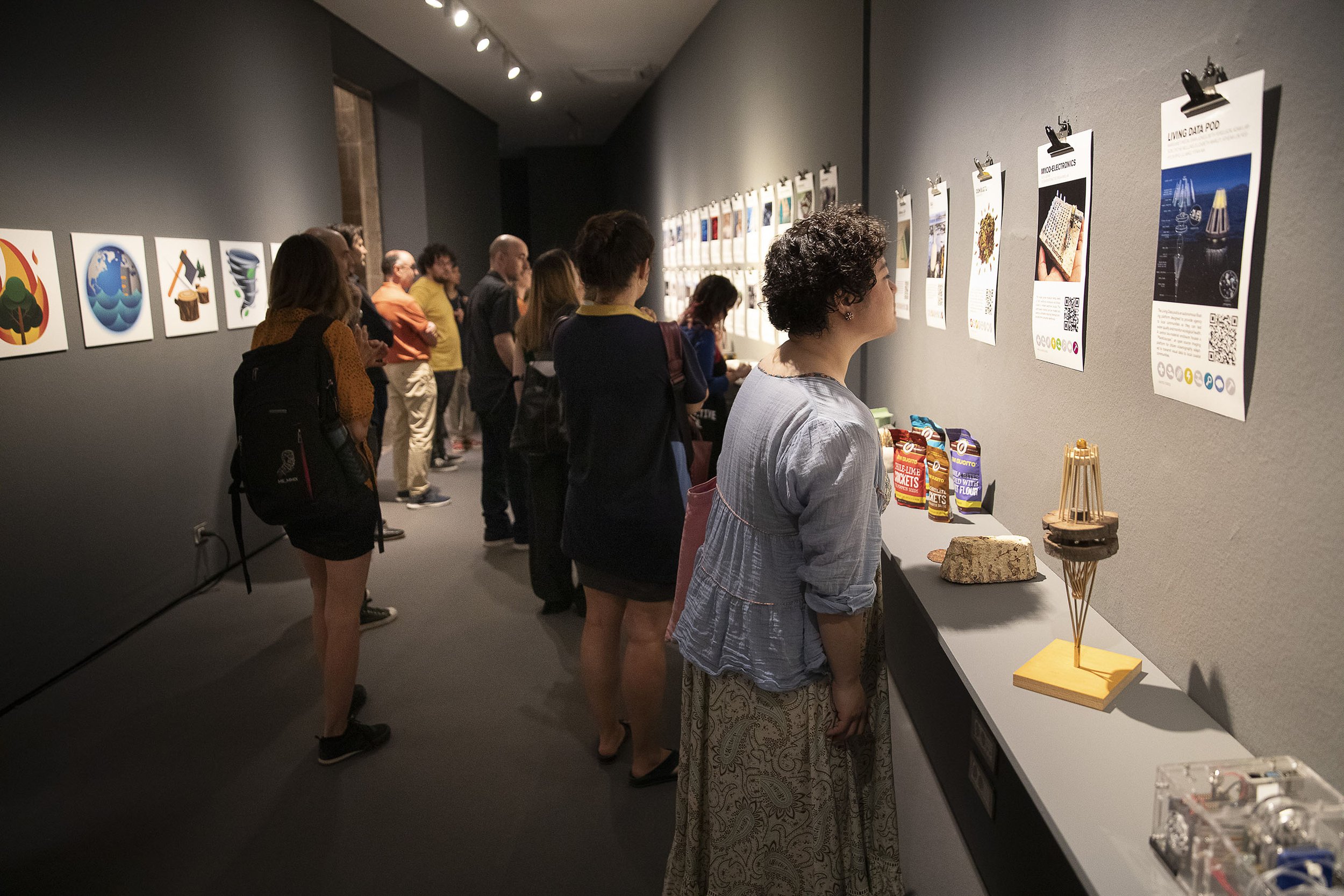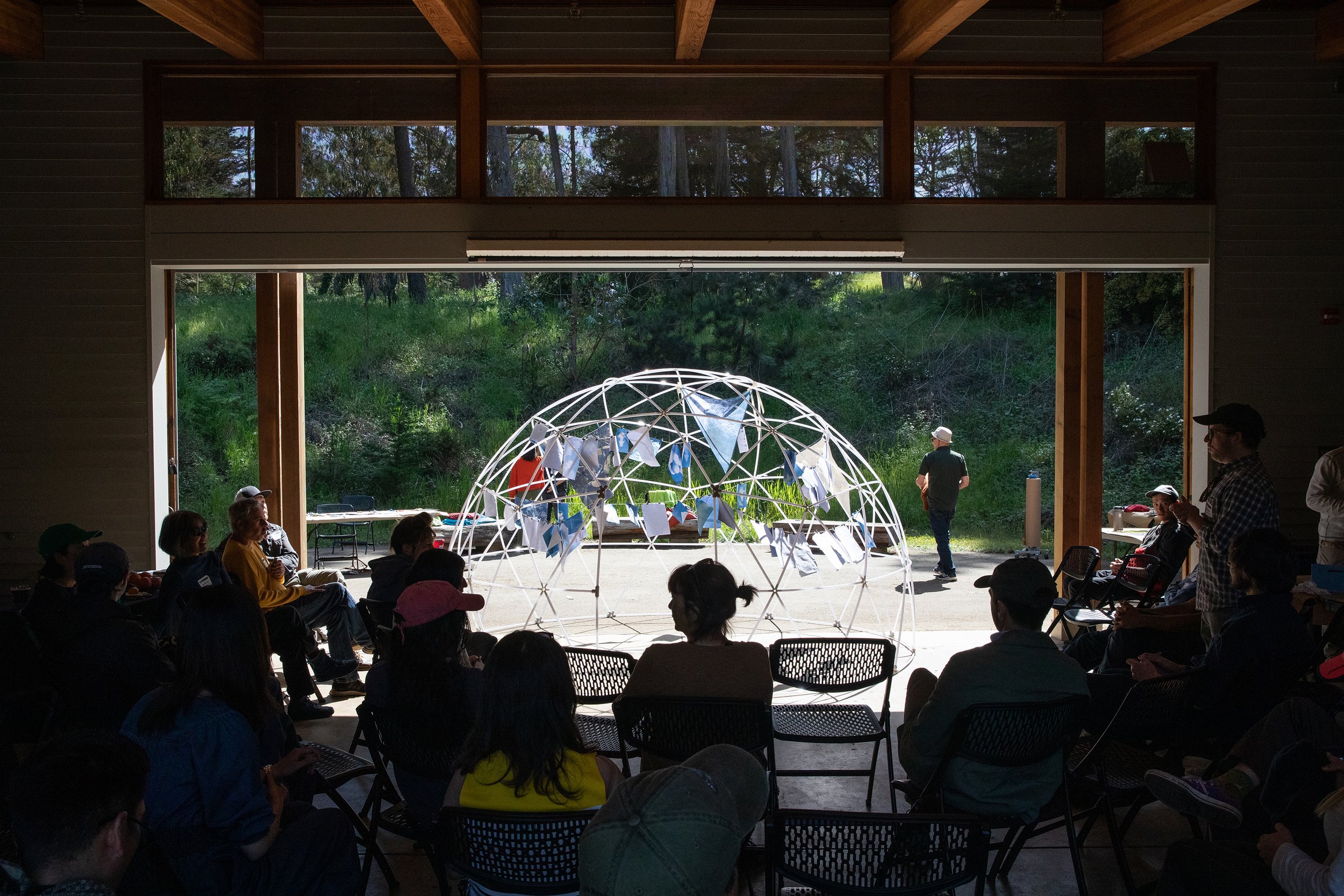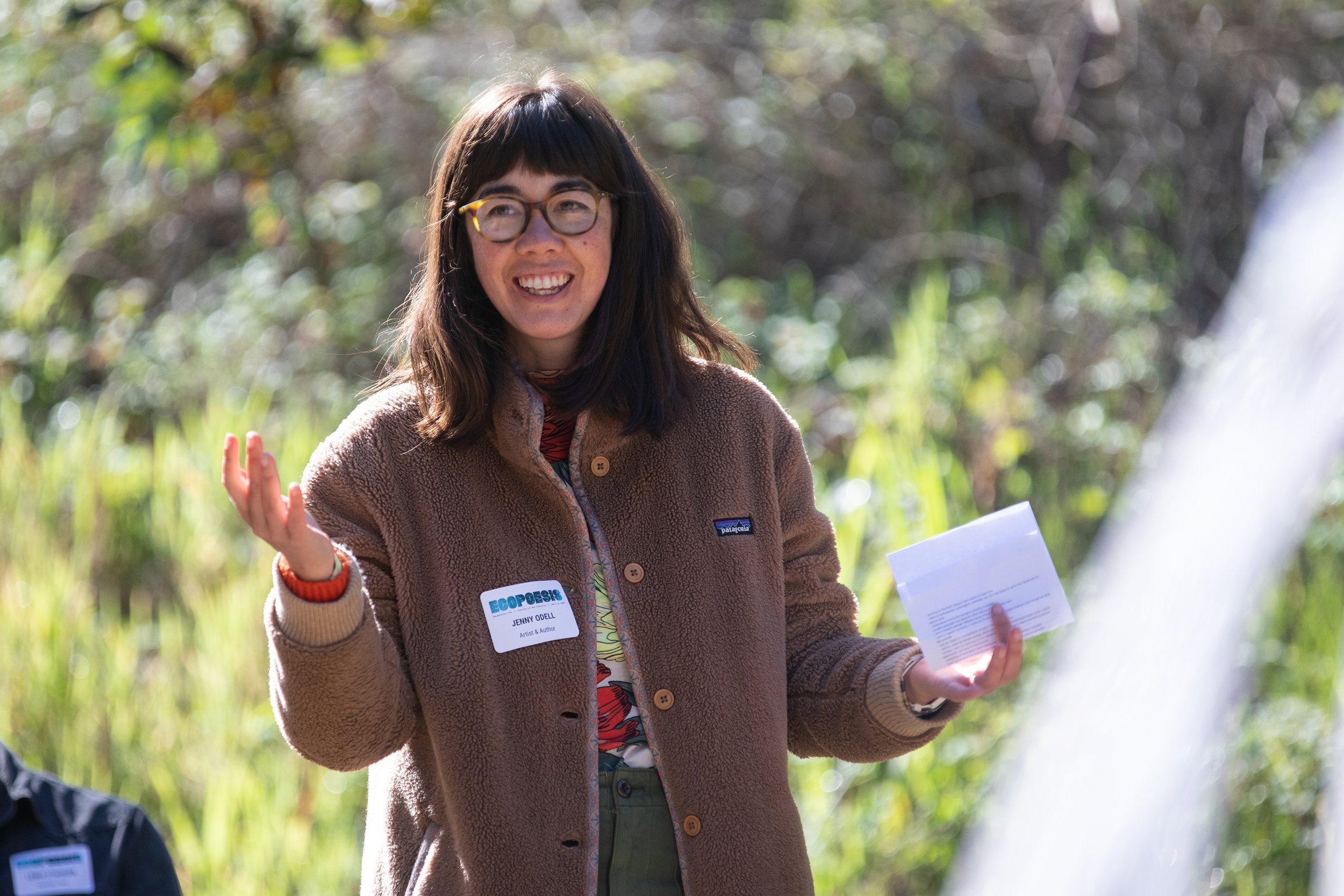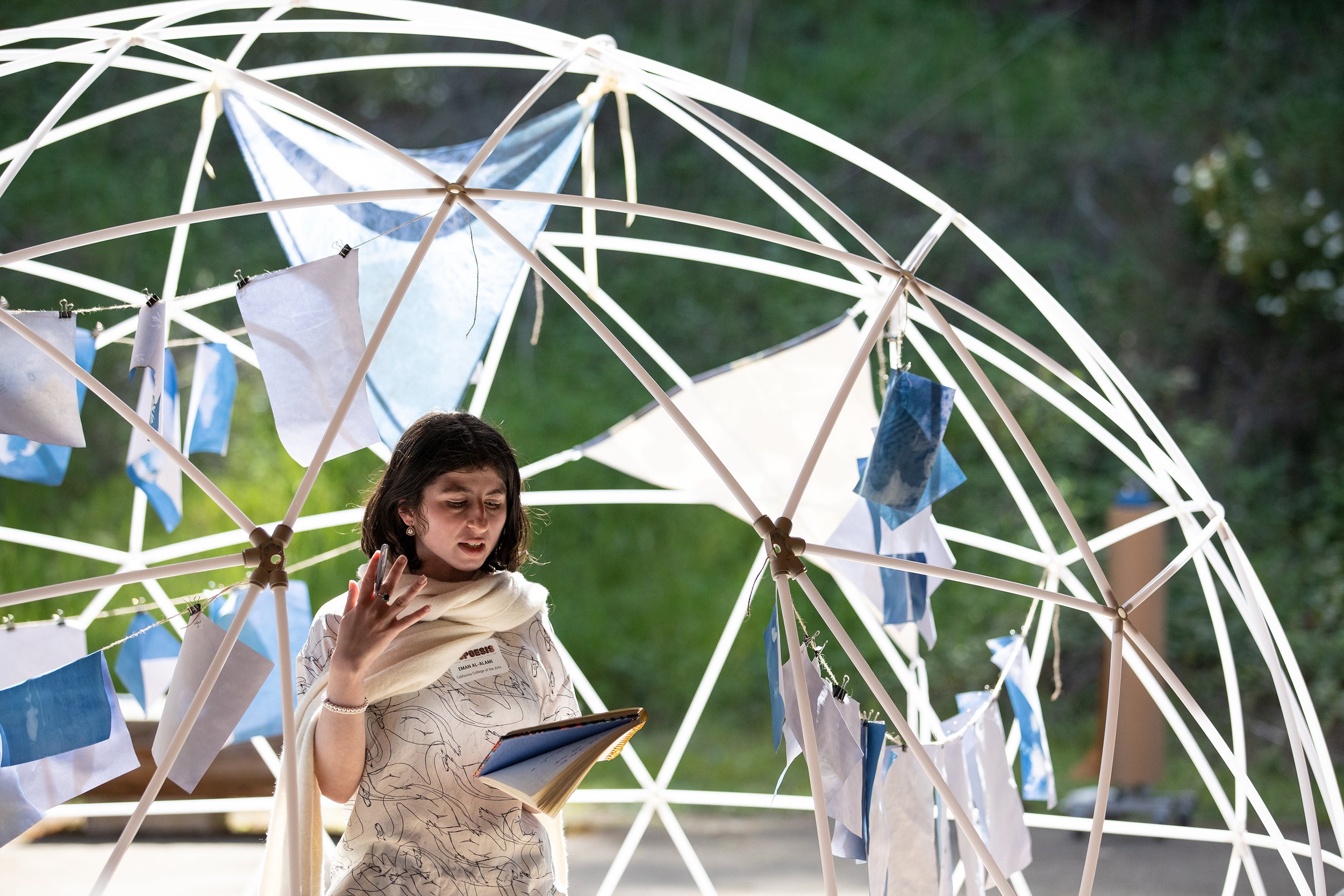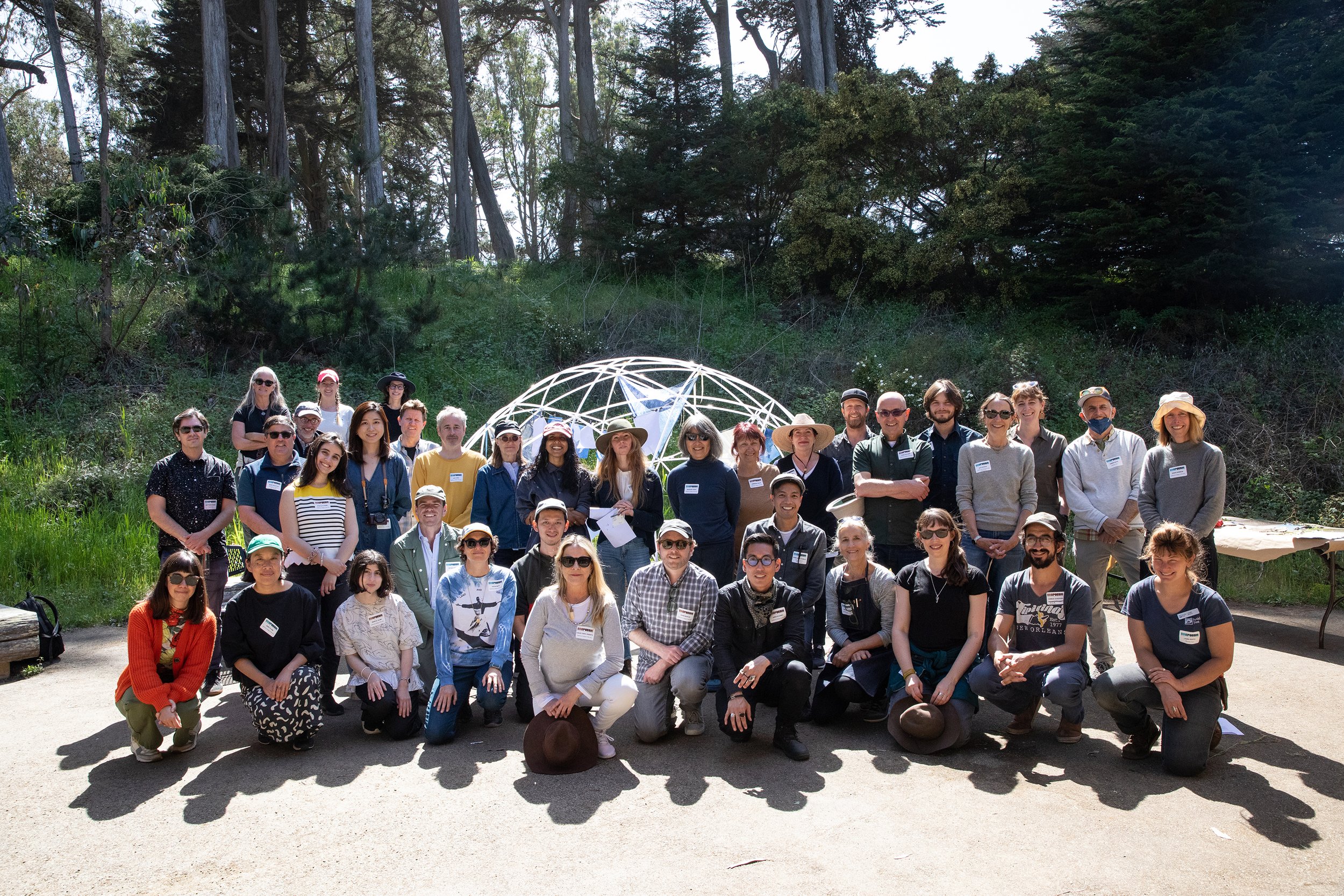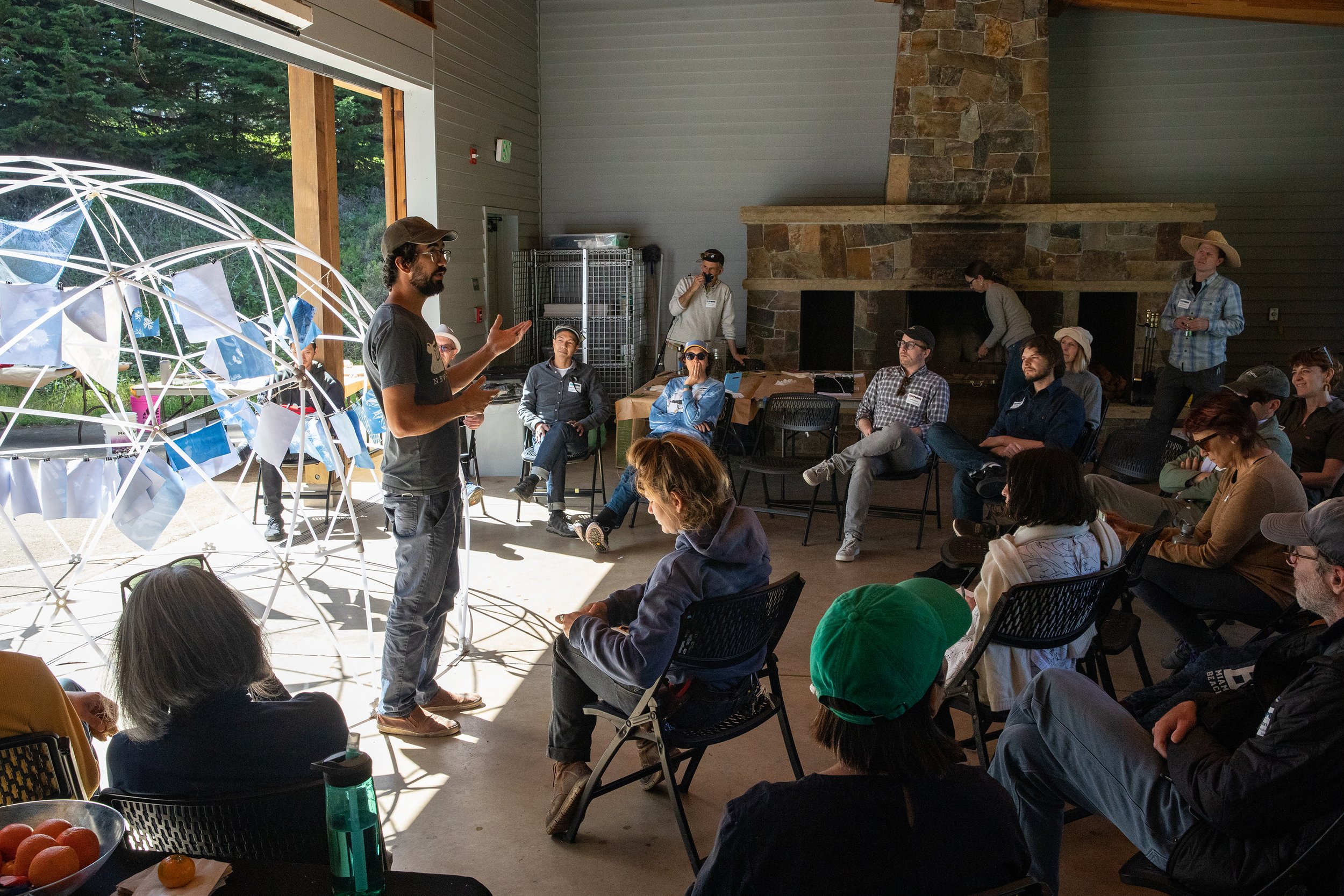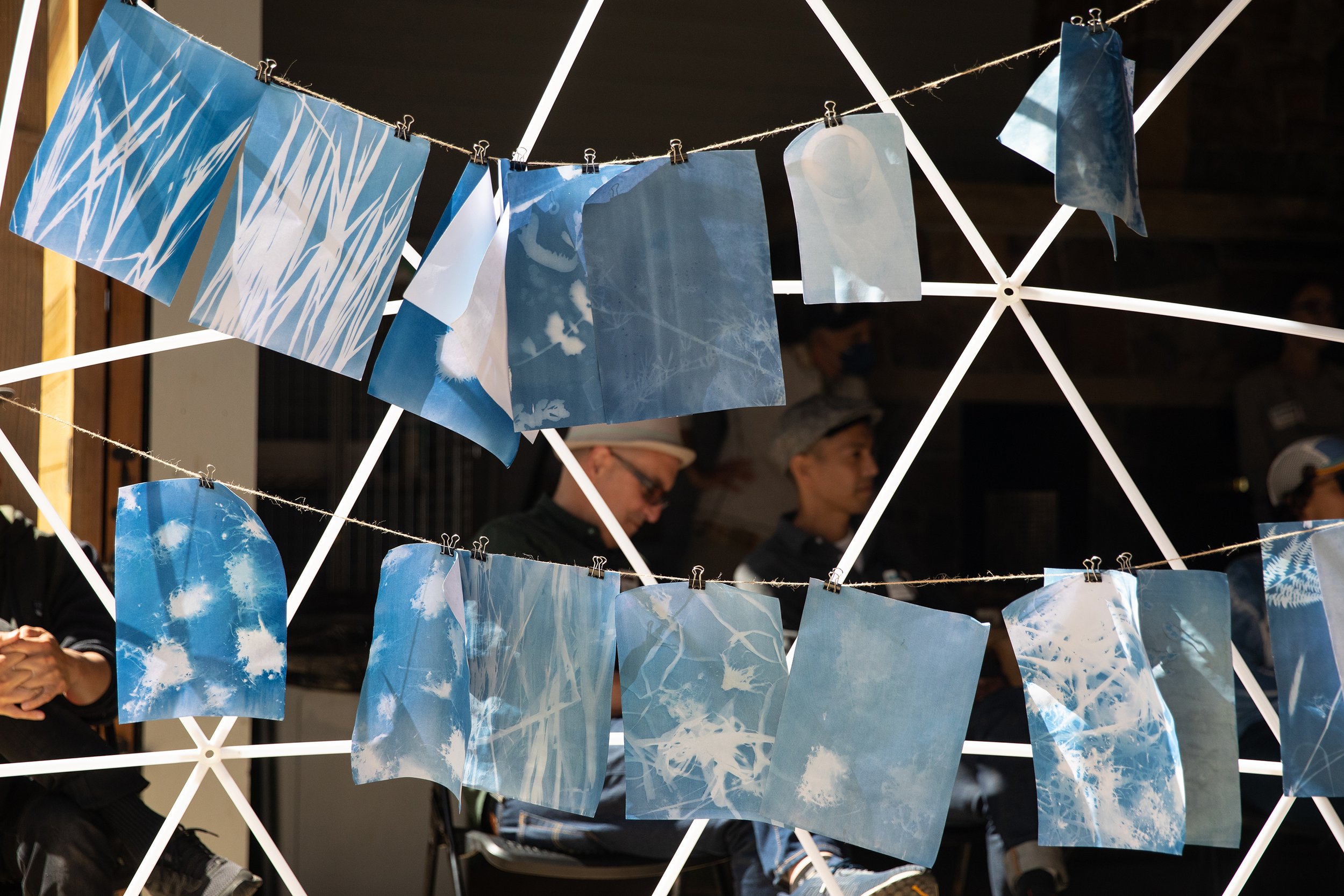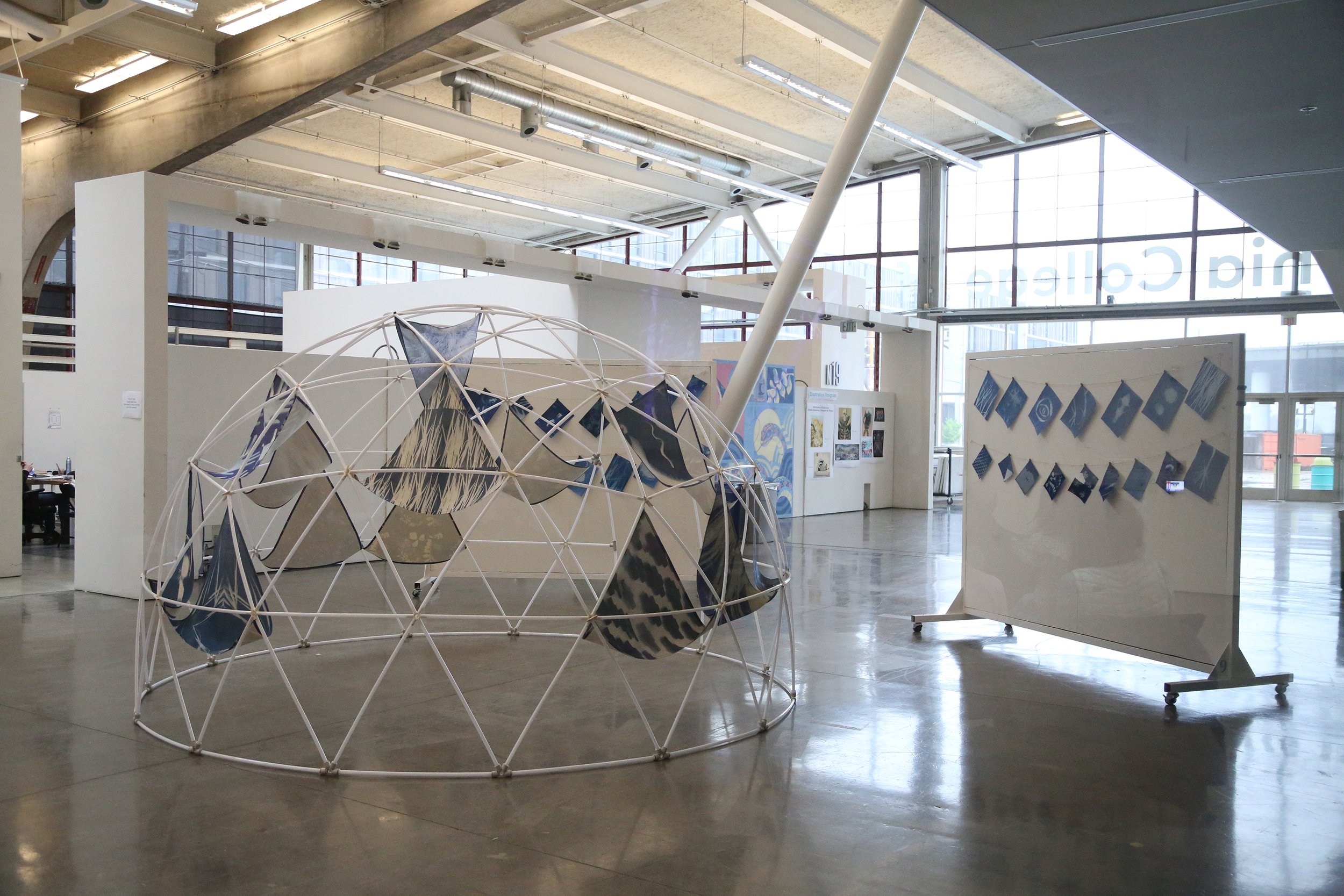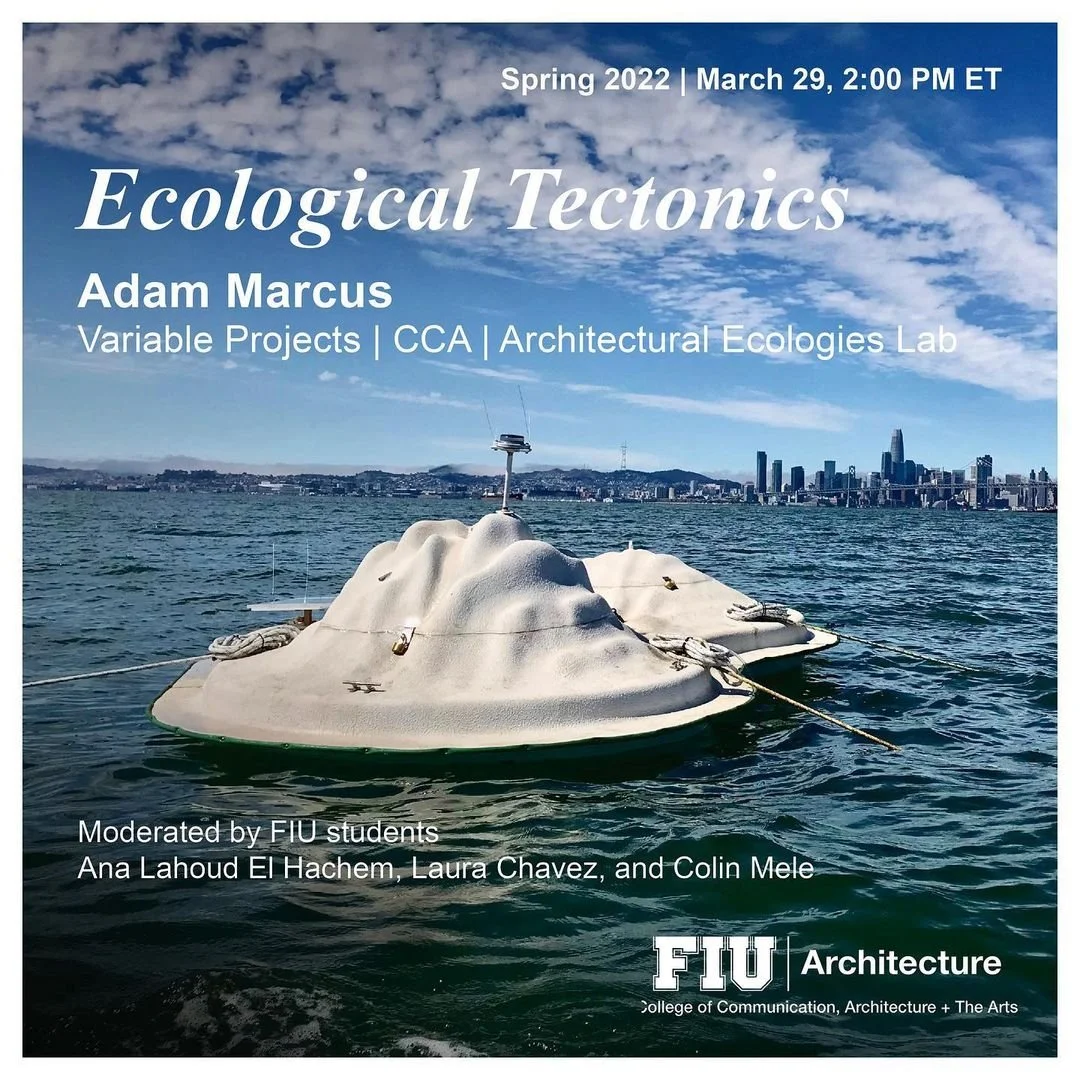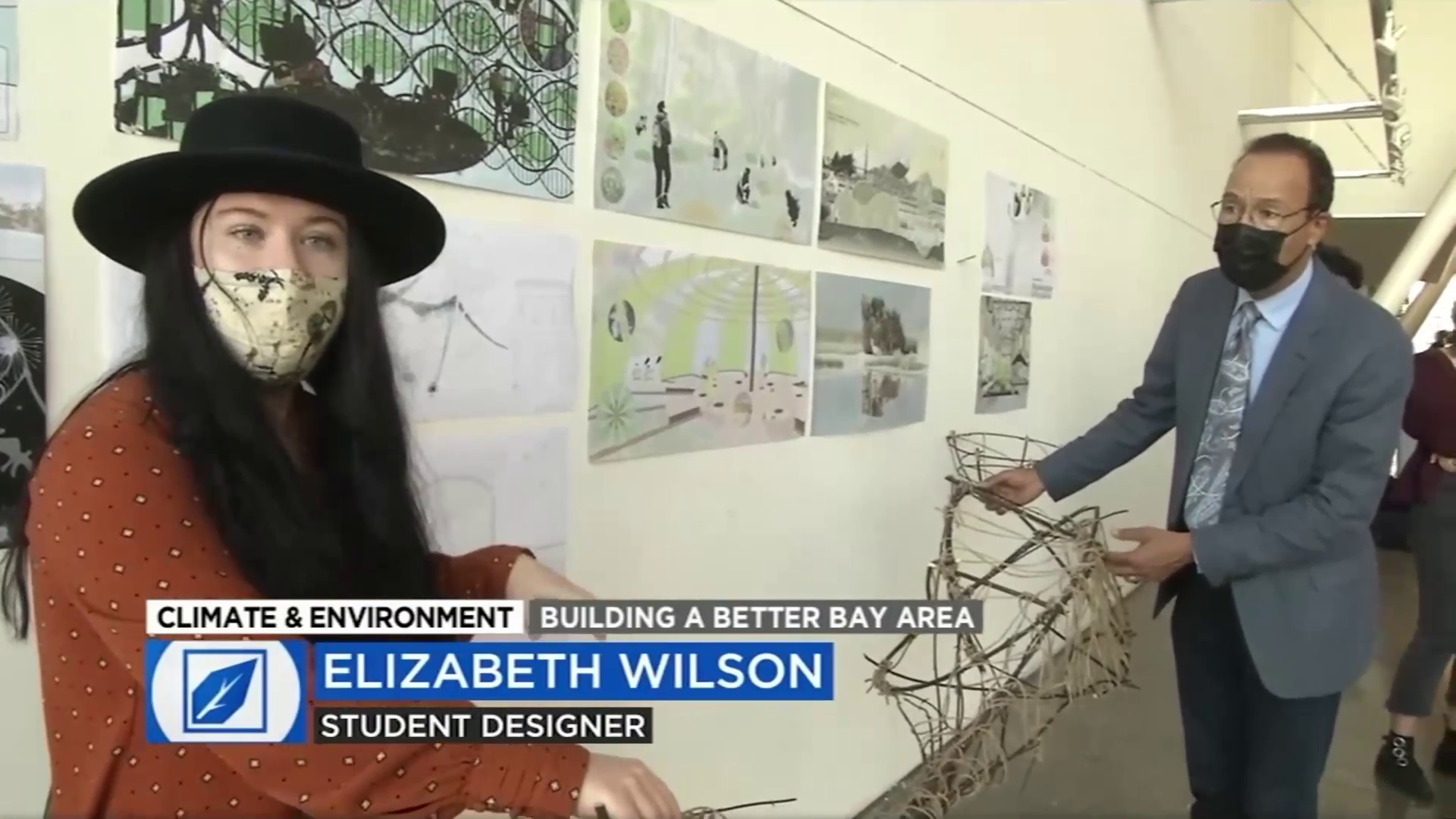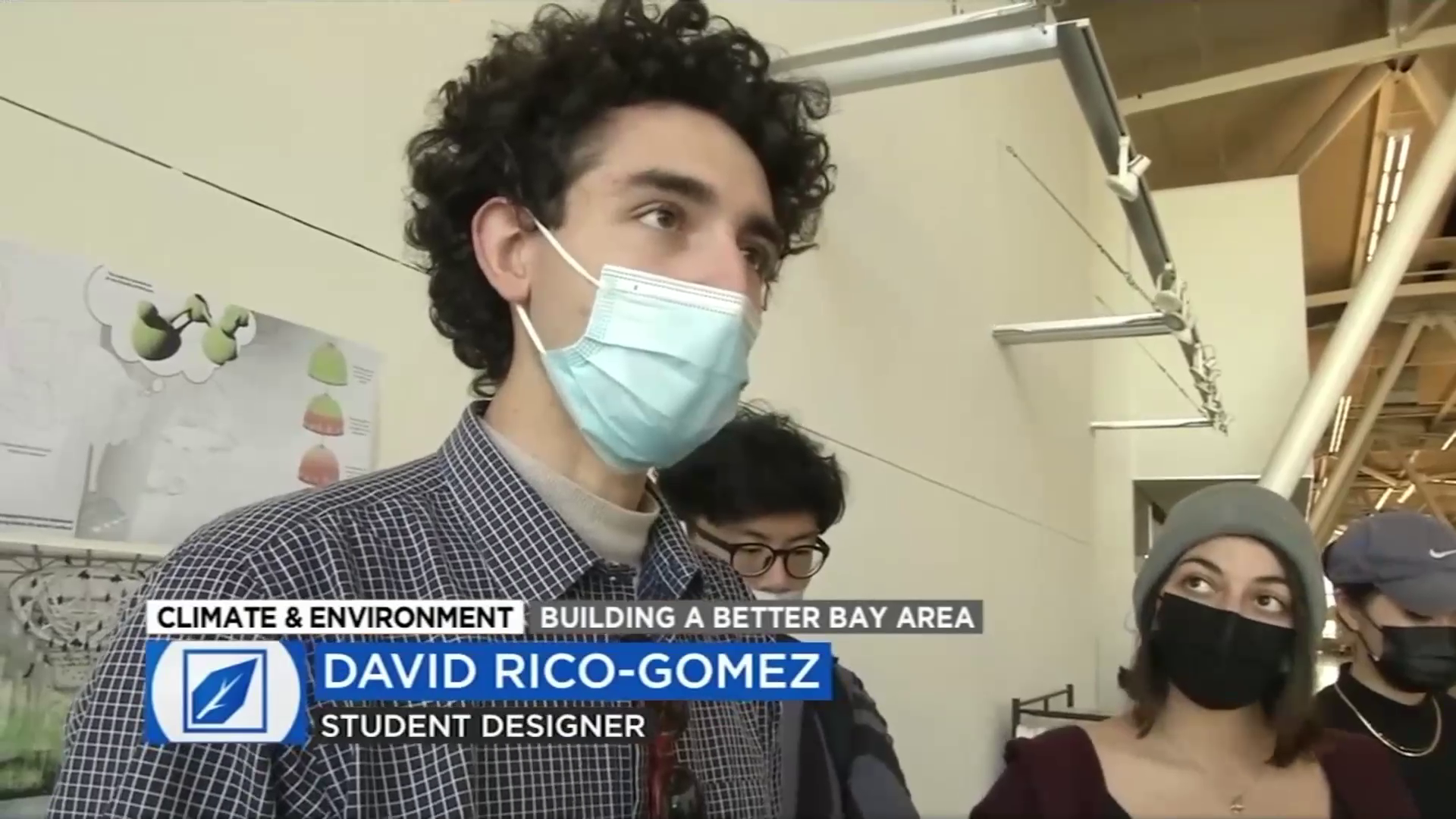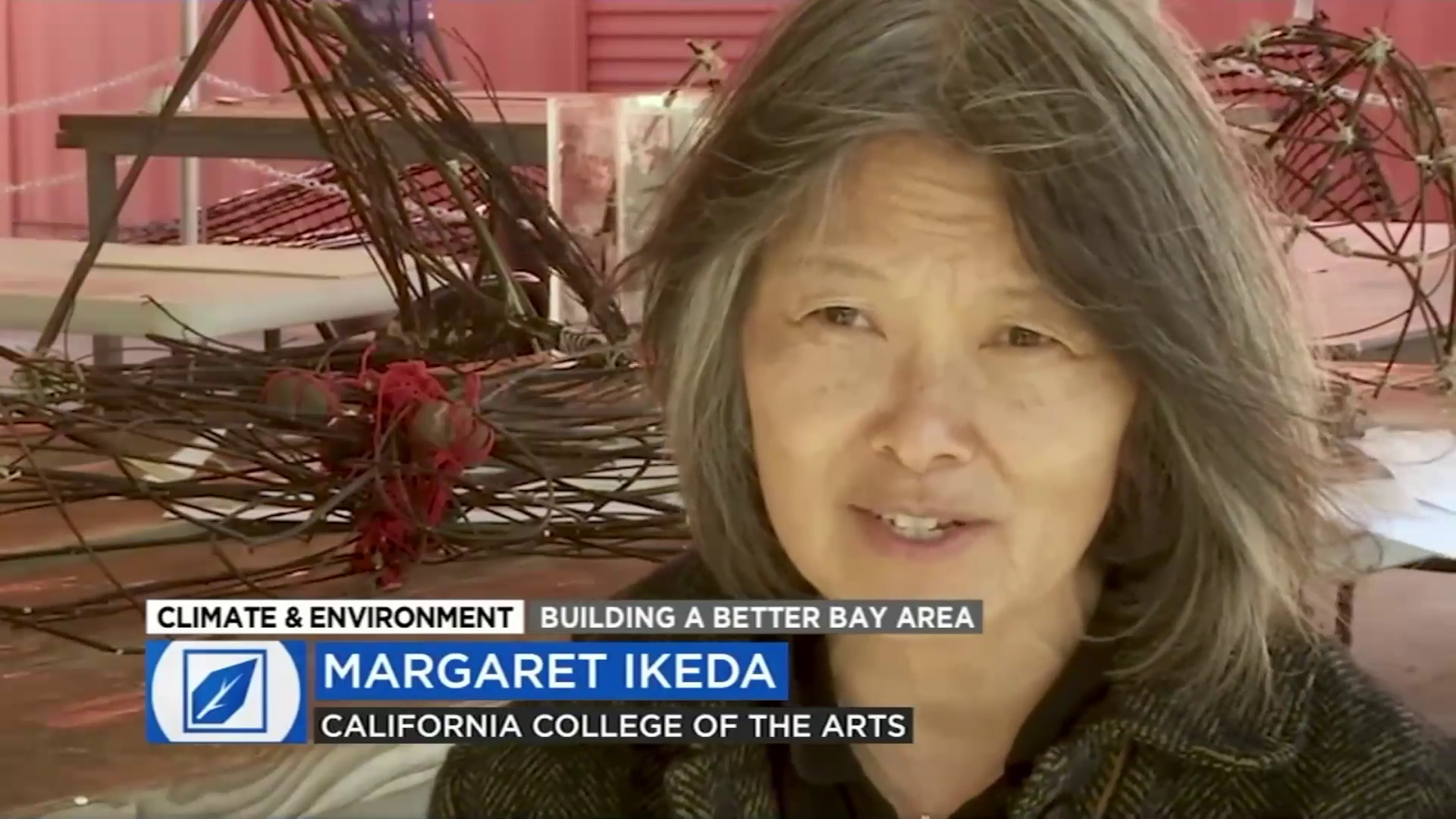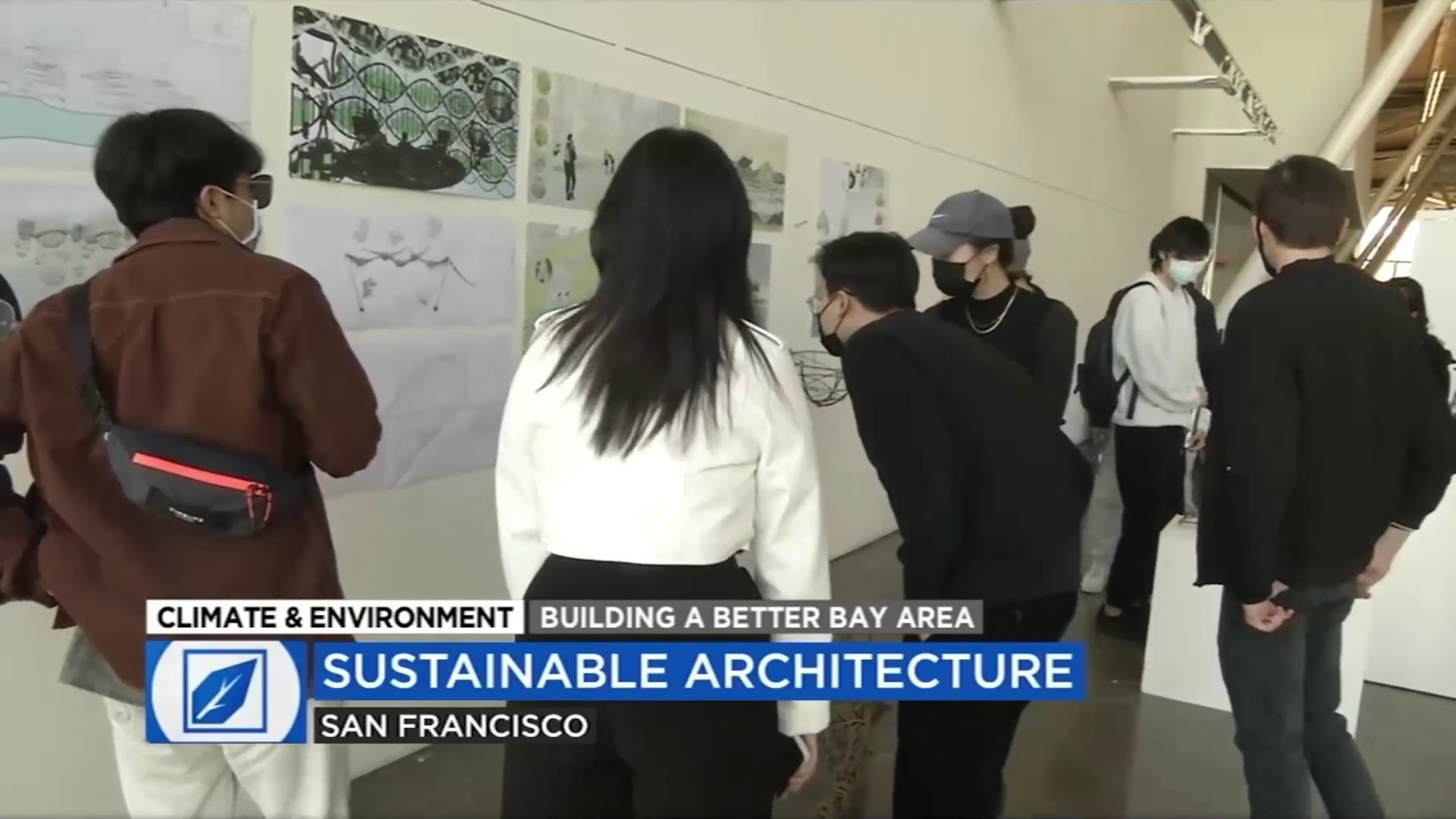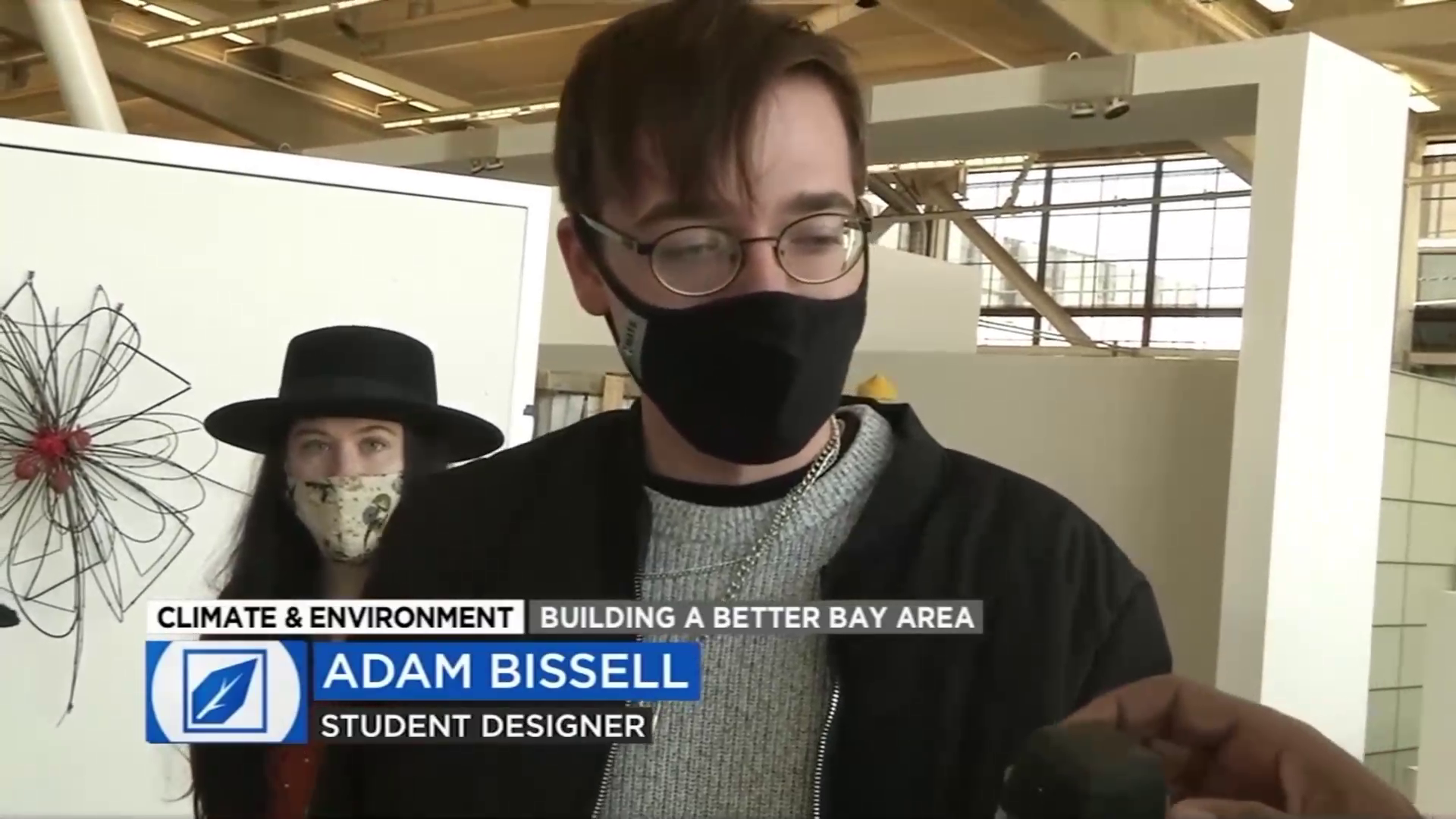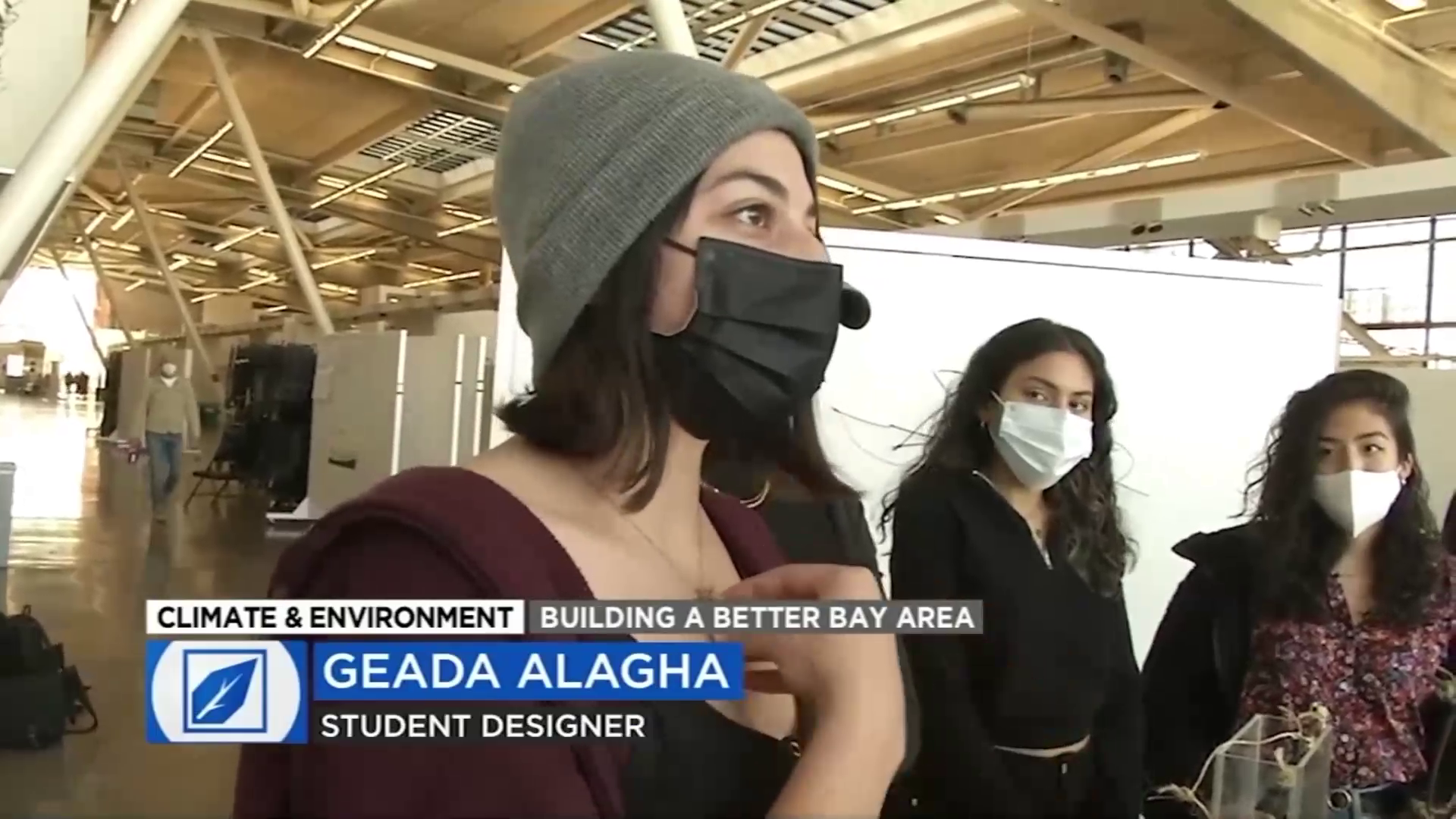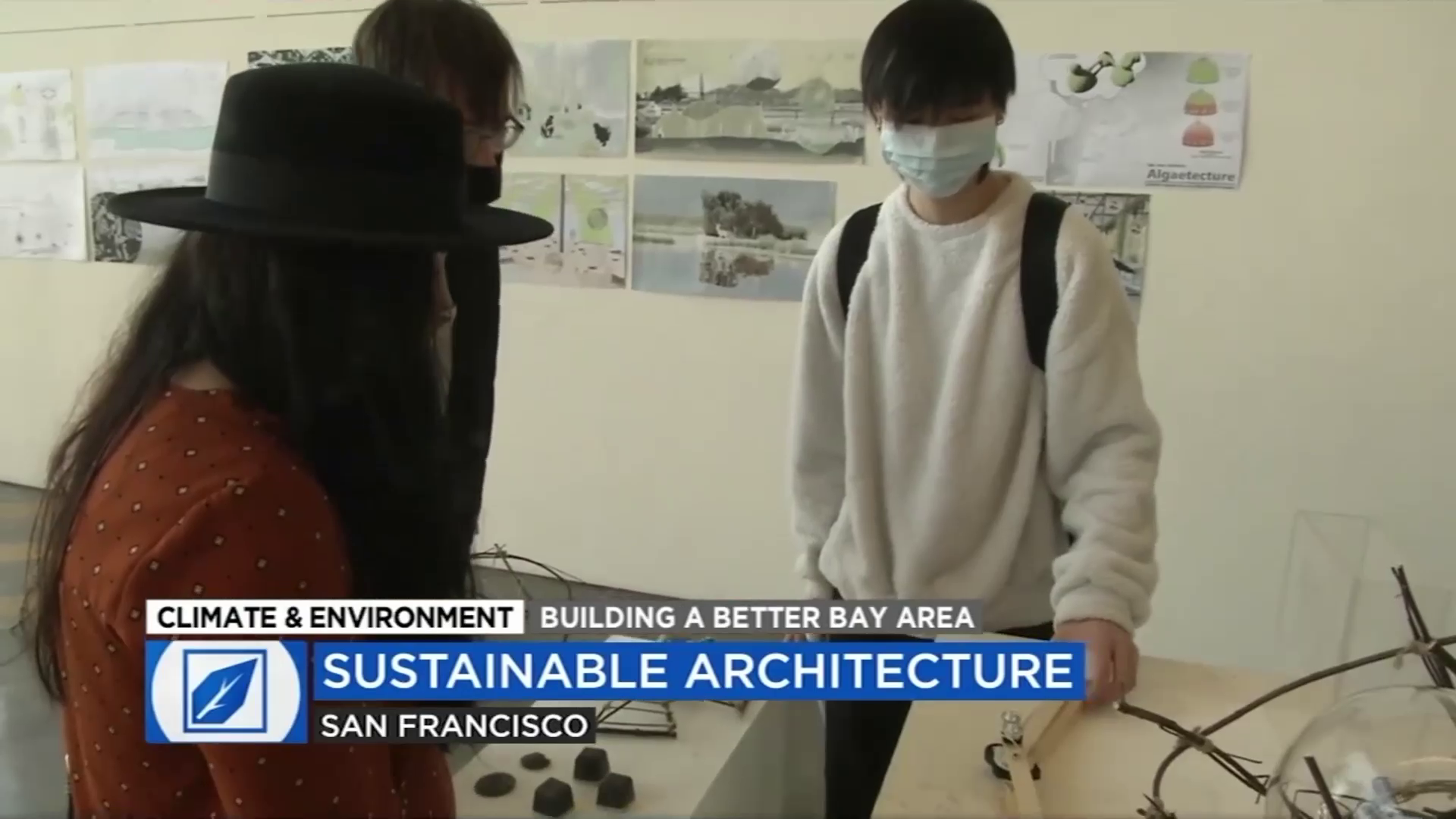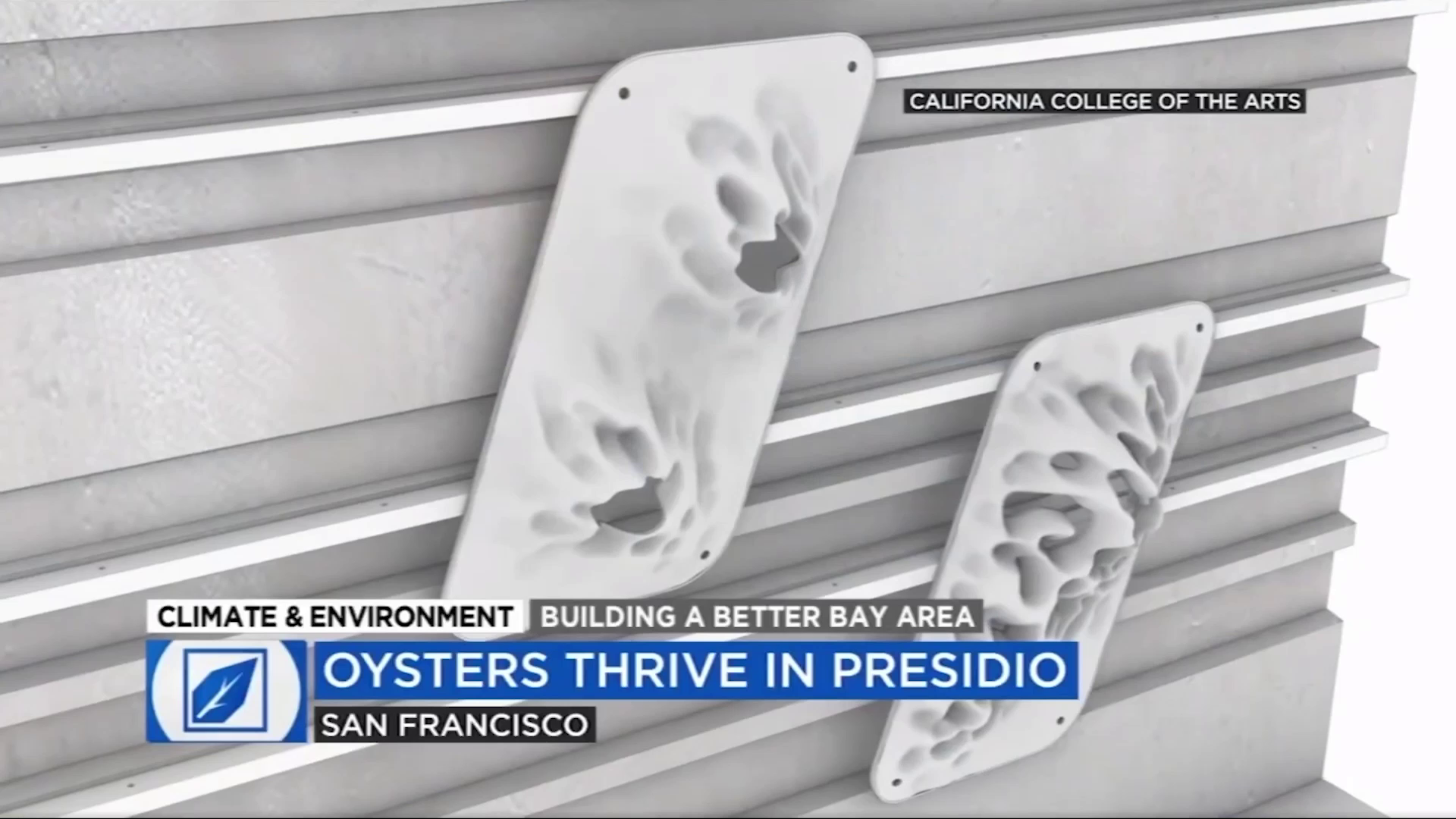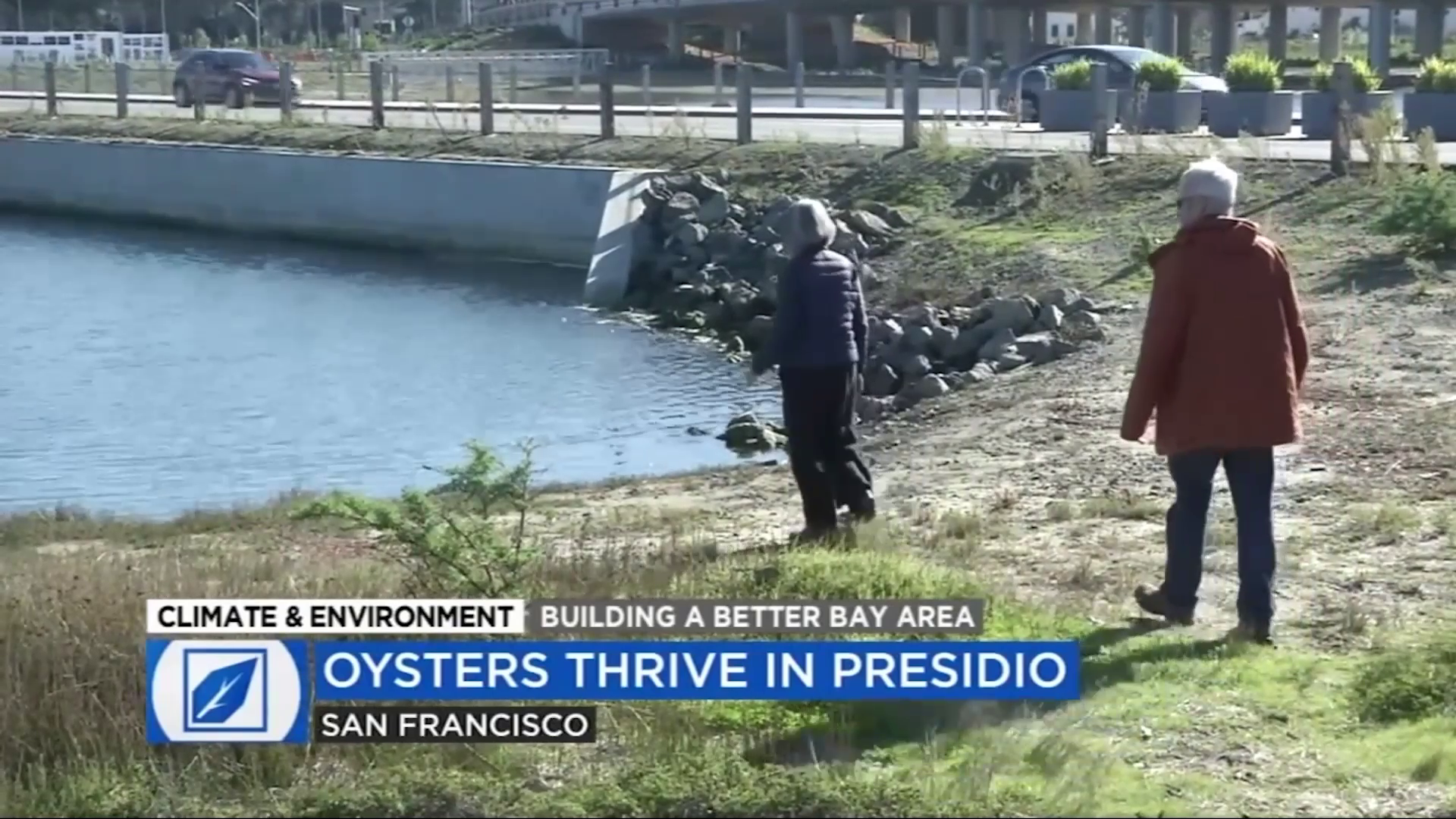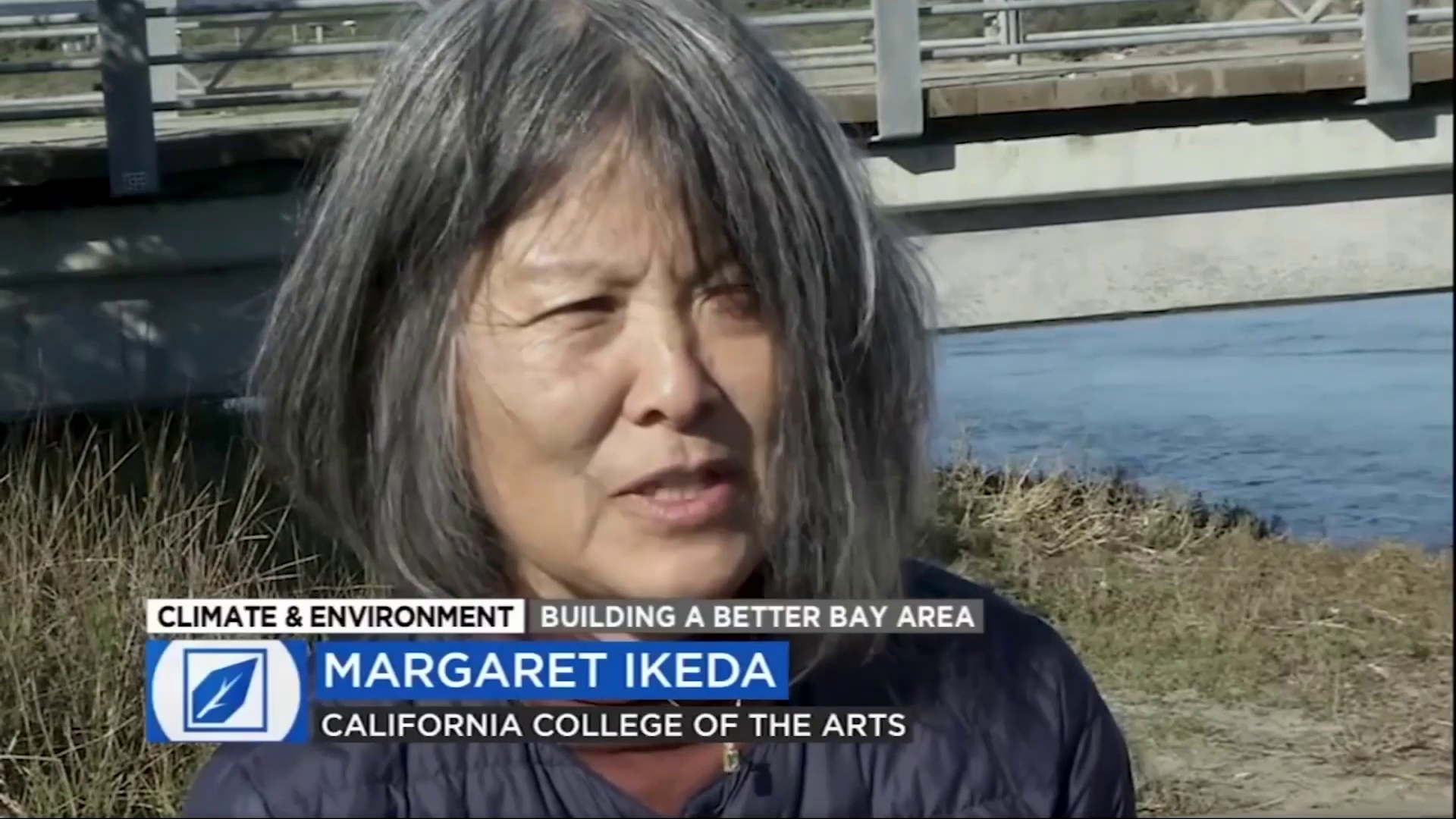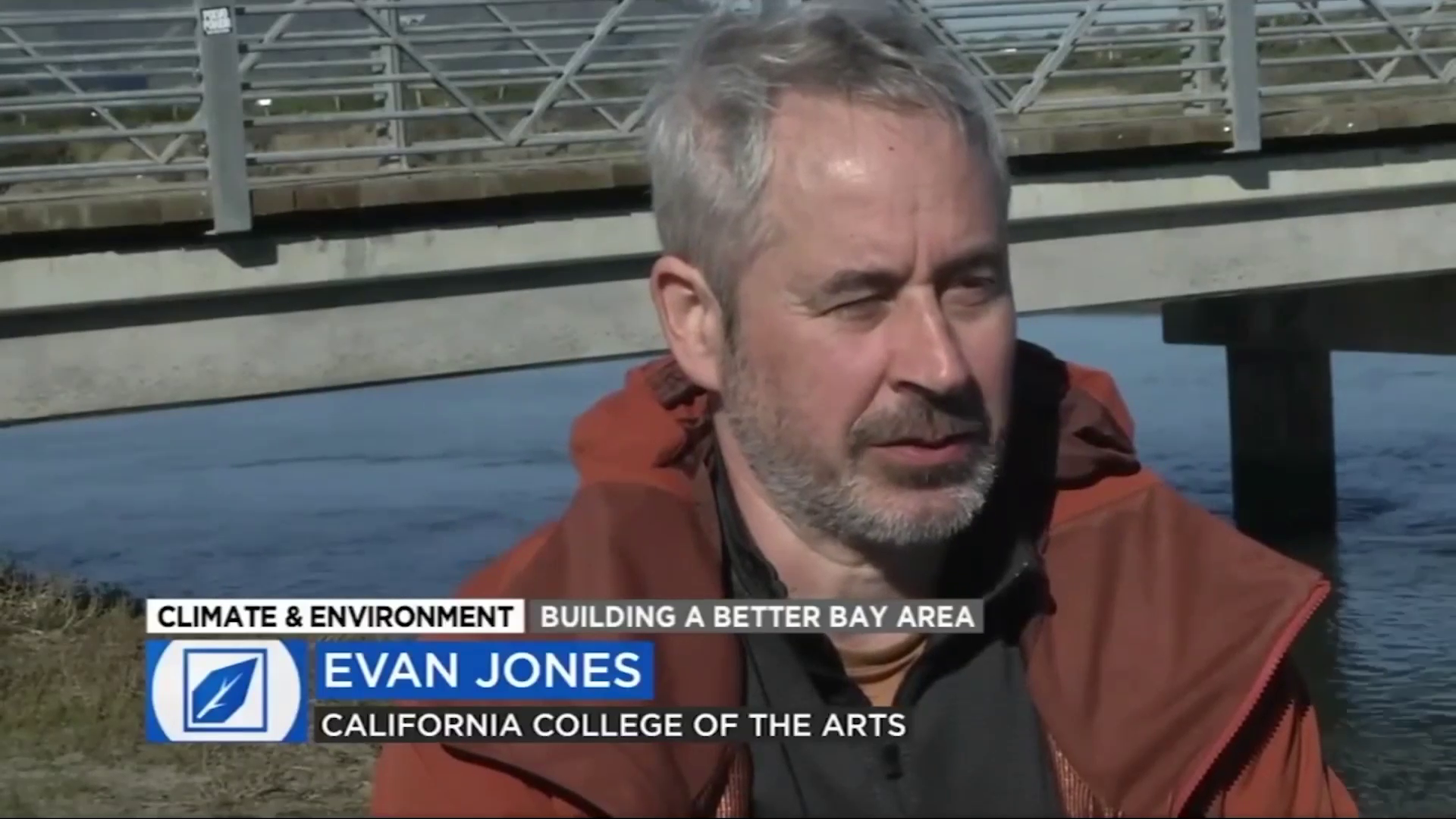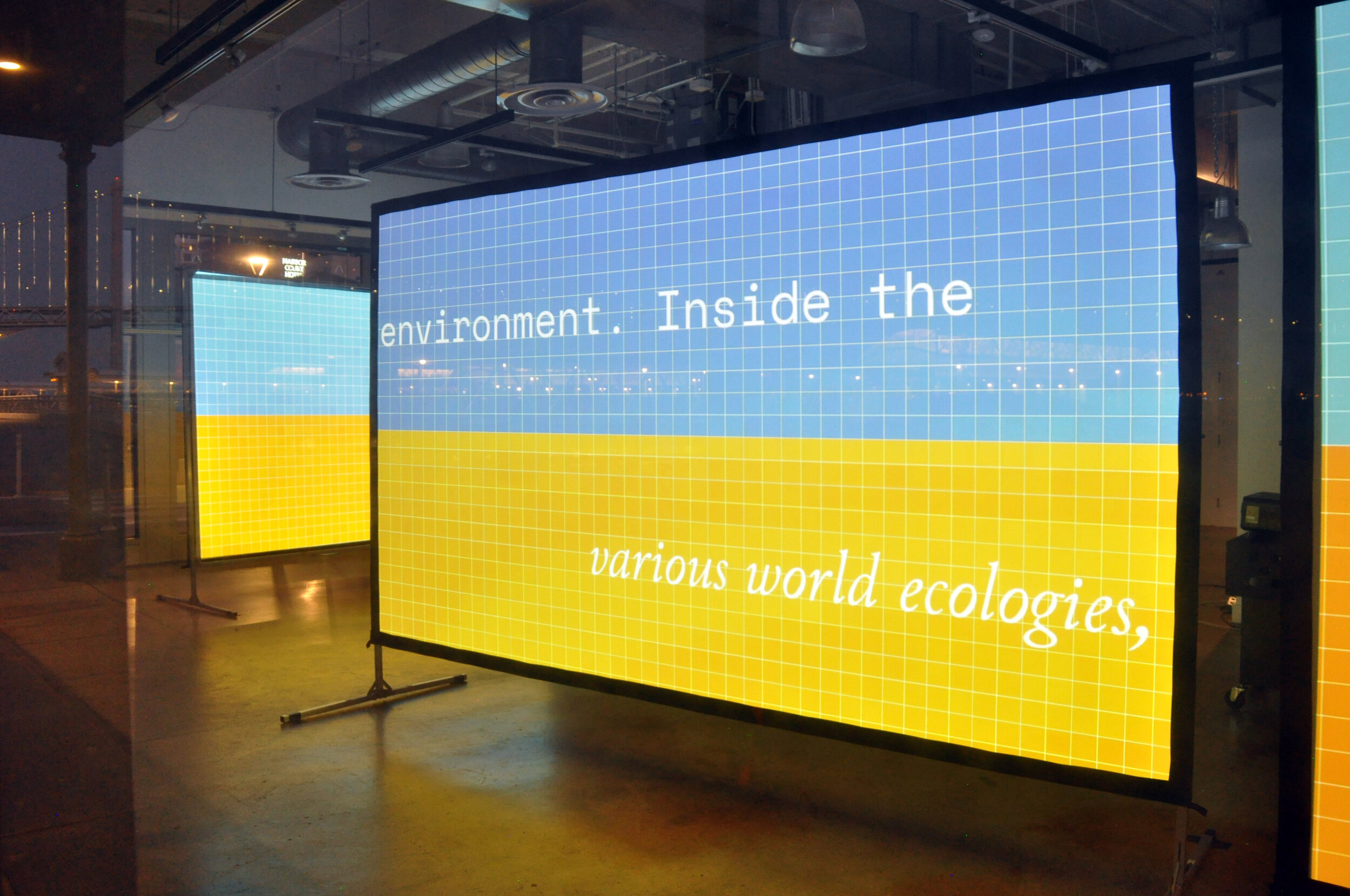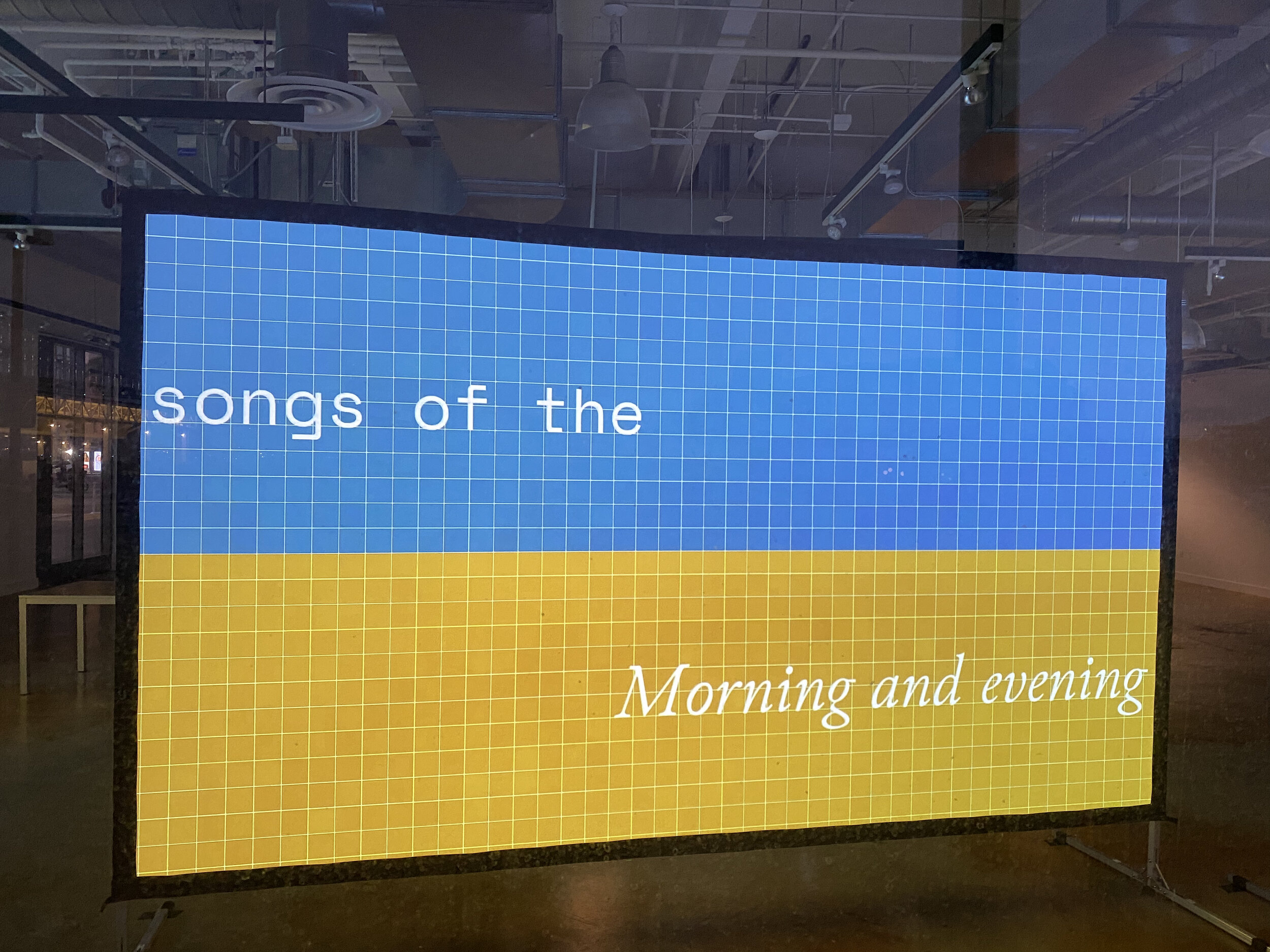ABC7 News recently featured the relocation of AEL’s Float Lab to Clipper Cove on Yerba Buena Island. The Lab will join the Treasure Island Sailing Center’s marine ecology education program, and provide a platform for ongoing research.
BioDesign Research Featured on ABC7 News
ABC7 News recently featured work by students at CCA and UCSF [LINK HERE] The award-winning project, "Shell We Dance?", explores innovative solutions for transforming egg and shellfish waste into sustainable building materials. The project team, led by CCA professors Margaret Ikeda, Evan Jones, and Negar Kalantar, and with UCSF professor Dyche Mullins, worked at Autodesk's Pier 9 Technology Center through an Academic Alliance.
The project tackles the pressing issue of construction waste and carbon emissions by drawing inspiration from natural shell structures. By developing moldable components and a complementary adhesive, the team created a new building system that incorporates living bacteria to enhance structural capacity. This sustainable approach aligns with the vision of reducing the environmental impact of the construction industry.
CCA Students: Miti Mehta, Negar Hosseini, Kianoush Hamedi, Jesus Guillermo Macias Franco
Project Leads: Margaret Ikeda, Evan Jones, Dr. Negar Kalantar, Dr. Dyche Mullins
UCSF Students: Alex Hong, Claire Kokontis, Camille Moore
Advisors: Ali Farajmandi, Dr. Anastasia H. Muliana, Dr.Alain Goriely, Dr. Gabor Domokos
2024 CCA/UCSF team wins Outstanding Science Award at BioDesign Challenge
CCA Architecture team, in collaboration with UCSF students and faculty, has won the Outstanding Science award at the 2024 BioDesign Challenge in New York. This remarkable achievement marks the second consecutive year the team has received this honor. The award-winning project, "Shell We Dance?", explores innovative solutions for transforming egg and shellfish waste into sustainable building materials. The project team, led by Margaret Ikeda, Evan Jones, Negar Kalantar, and Dyche Mullins worked at Autodesk's Pier 9 Technology Center through our Academic Alliance. The project tackles the pressing issue of construction waste and carbon emissions by drawing inspiration from natural shell structures. By developing moldable components and a complementary adhesive, the team created a new building system that incorporates living bacteria to enhance structural capacity. This sustainable approach aligns with the vision of reducing the environmental impact of the construction industry.
Team Members:
CCA Students: Miti Mehta, Negar Hosseini, Kianoush Hamedi, Jesus Guillermo Macias Franco
Project Leads: Margaret Ikeda, Evan Jones, Dr. Negar Kalantar, Dr. Dyche Mullins
UCSF Students: Alex Hong, Claire Kokontis, Camille Moore
Advisors: Ali Farajmandi, Dr. Anastasia H. Muliana, Dr.Alain Goriely, Dr. Gabor Domokos
Project Highlights:
Inspiration from Nature: The team was inspired by the complex structures of natural shells and aimed to replicate these forms sustainably.
Environmental Impact: The project addresses the high carbon emissions of the construction industry by utilizing egg and shellfish waste, materials that are typically discarded in large quantities.
Interdisciplinary Collaboration: The project exemplifies the power of interdisciplinary research, bringing together architectural designers, cellular biologists, material scientists, applied geometric modeling mathematicians, and fabricators.
Innovative Material Development: By experimenting with binding agents like gelatin and potato starch, the team created a robust, repeatable bio-material. The addition of living bacteria further strengthened the material, achieving a strength comparable to cork and rubber.
Modular Building System: Inspired by mathematical principles and natural aggregation patterns, the team developed a modular system that can be scaled up to building blocks
Biodesign presentation at New York City June 13
Margaret Ikeda and Evan Jones of AEL, and Negar Kalantar of DCL will be accompanying their cross collaborative team from CCA’s architecture division and UCSF’s microbiology department. CCA students Negar Hosseini, Miti Chetan Mehta, Jesus Guillermo Macias Franco and Kianoush Hamedi worked with UCSF students Claire Kokontis, Alex Hong, and Camille Moore on the entry “Shell we dance”. The project created biomaterial our of shellfish and eggshell waste. Taught with Professor from UCSF (Dyche Mullins), the team was assisted and advised from advanced mathematic professors Alain Goriely (Oxford University) and Gábor Domokos (Budapest University of Technology and Economics) and Ali Farajmandi (graduate of CCA’s MAAD program).
Marcus, Ikeda and Jones Publish Essay in POOL Journal
Adam Marcus, Margaret Ikeda, and Evan Jones recently published the essay “Floating With: Buoyant Ecologies of Collaboration and Solidarity” in POOL, the student magazine of the Department of Architecture & Urban Design at the University of California, Los Angeles. The POOL editors invited the AEL to reflect on the Buoyant Ecologies project for the journal’s latest issue, FLOAT. The essay positions the Buoyant Ecologies research in opposition to and in critique of Seasteading and other libertarian visions of colonizing the ocean as a site for extractive, neoliberal capitalism. Instead, this work embraces Donna Haraway’s notion of sympoiesis and “making-with,” advocating a communal and collaborative relationship with the ocean as a site for interspecies exchange, interaction, and mutual resilience.
BioDesign Research Featured on ABC7 News
ABC7 News recently featured work by students in Margaret Ikeda’s Fall 2021 Constructed Ecologies course, in which students developed concepts for artificial habitats made from natural materials. The feature showcased the recent installation of a prototype for a bird habitat, fabricated from local acacia and willow branches, at San Francisco’s Presidio, where the Architecture Ecologies Lab has an ongoing partnership. The story featured interviews with Prof. Ikeda and student Geada Alagha (M.Arch 2022).
Link: “Student-led biodesign architecture project adds habitats to SF's Presidio”
Buoyant Ecologies Float Lab Featured in Munich Exhibition
This summer, the Buoyant Ecologies Float Lab is featured in the Houses that Can Save the World exhibition at Kunstraum München in Germany. The exhibition, which is curated by Courtenay Smith and Sean Topham and runs from June 16 to July 31, 2022, showcases a range of innovative housing types that represent sustainable and dignified models of living. The exhibition is based on the book of the same name that is being published by Thames & Hudson, London, in September 2022.
AEL Research Featured in Barcelona Exhibition "Tools for a Warming Climate"
Research by the Architectural Ecologies Lab is featured in the exhibition “Tools for a Warming Climate,” part of the larger show “La Irrupció" organized as part of the 2022 International Symposium on Electronic Art in Barcelona, Spain. The exhibition, installed at Arts Santa Mònica from June 9 to August 20, 2022, features a collection of design projects selected by curators Sara Dean, Beth Ferguson, and Marina Monsonís that provide tools to respond urgently to our planet’s uncertain future through art, activism and technology. AEL work includes the Ecopoesis Dome, Public Sediment, and the Living Data Pod.
2022 Ecopoesis Workshop 'Repairing Time' Held at Presidio, Features Jenny Odell as Keynote
The 2022 Ecopoesis workshop and gathering ‘Repairing Time’ was held in the San Francisco Presidio on April 9, 2022 and featured artist and author Jenny Odell as keynote. Following the event, Odell delivered a public talk on Thursday, April 14 at California College of the Arts in San Francisco.
Odell’s book How to Do Nothing: Resisting the Attention Economy served as the thematic catalyst for the event, challenging us to consider the relationship between climate change and our perception of different scales of time. The workshop participants produced a series of cyanotype prints that experiment with the medium’s time-based qualities as a reflection on tangible ecological change. The intent was to challenge the default “how much time is left” sensibility that characterizes much of climate discourse, and instead explore how thinking across multiple time scales might allow for deeper understandings of the crisis we currently face. Through collective acts of making, the workshop tested creative alternatives of language and imagery that can inspire solidarity.
Following the event, timed to coincide with Odell’s keynote at CCA, enlargements of cyanotypes from the workshop were printed on fabric and installed on the Ecopoesis Dome, a new traveling platform for ecological and climate discourse.
Many thanks to the Golden Gate National Parks Conservancy and Presidio Trust for supporting this event.
Adam Marcus Lectures at Florida International University
On March 29, 2022, Adam Marcus delivered a lecture “Ecological Tectonics” at Florida International University School of Architecture as part of their spring 2022 public lecture series.
Constructed Ecologies Research Featured on ABC7 News
ABC7 News recently featured work by students in Margaret Ikeda’s Fall 2021 Constructed Ecologies course, in which students developed concepts for artificial habitats made from natural materials and inspired by Indigenous material practices.
Link: “'Idea of hope': SF college students design sustainable architecture that helps ecosystems flourish”
Presidio Reef Research Featured on ABC7 News
The Presidio Culvert Reef project was recently featured in a story on ABC7 News, by Spencer Christian and Tim Didion. AEL directors Margaret Ikeda and Evan Jones were interviewed on site for the story, discussing how the AEL’s work designing and fabricating ecological substrates is contributing to oyster habitat restoration in the Presidio’s Crissy Marsh.
Link: “Combining infrastructure and ecology: Oysters find new home in SF’s Presidio tidal marsh”
Ikeda and Jones Present at UC Davis Symposium
On November 19, Margaret Ikeda and Evan Jones presented AEL research at the symposium “A Living Atlas: Community-sourced Design for Citizen Science” at the University of California, Davis. The presentation included an overview of AEL research projects, including the Buoyant Ecologies Float Lab, the Presidio Culvert Reef and the work with the Treasure Island Sailing Club’s “Sailing to Save the Sea” science education program. The latter involves an ongoing collaboration with Adam Larson from Stanford University’s Prakash Lab deploying their PlanktoScope to survey microscopic aquatic life. Larson also presented at the symposium, along with CCA student Yitian Ma (B.Arch 2022), who shared the “Living Pod” project developed in 2019 Constructed Ecologies class for the 2019 BioDesign Challenge. This project incorporated a floating PlanktoScope capable of autonomous monitoring of plankton and microplastics, which is being developed in conjunction with Adam Larson at the Autodesk Technology Center in San Francisco.
Ikeda and Jones Present at Maldives Villa College
Margaret Ikeda and Evan Jones recently participated in an international conference on social research and innovation at Villa College in the Maldives. Profs. Ikeda and Jones were invited to present their Buoyant Ecologies Maldives studio work from CCA and the University of Washington. The conference, titled “Building Back Better: A Resilient Future for All,” explored responses to threats of sea level rise affecting the Maldives and looked at the potential for floating architecture and regenerative infrastructures to create adaptable solutions for local islands.
Coral Carbonate Research by Alex Schofield Featured on ABC7 News
CCA Adjunct Professor Alex Schofield was recently featured on ABC7 Eyewitness News, showcasing his innovative research into 3d printed calcium carbonate structures that aim to help restore coral reefs and increase biodiversity in the marine environment. Schofield’s Coral Carbonate research is developed through his practice Objects and Ideograms, and a series of his custom-made hanging fish house prototypes are currently suspended underwater from the Buoyant Ecologies Float Lab, an ecological pilot project developed by AEL and moored in Oakland’s Middle Harbor.
To see the full story along with recent footage of the deployed prototypes on the Float Lab, see this link or video below.
Roberts and Falliers Present at ASLE Conference
From July 26- August 6, the Association for the Study of Language and the Environment (ASLE.org) convened its biannual international conference, titled EMERGENCE(Y). On August 4, Leslie Carol Roberts and Christopher Falliers, founders of the ECOPOESIS Project with Adam Marcus, presented on the panel “The Art(s) of Environmental Change,” alongside John Yunker, Ashland Press; Michael Hewson, CQUniversity; and the independent artists Sarah Crooks, and Beth Shepherd. In their paper, “How We Hear Now: Spatial Practice and the Materiality of Ecological Stories,” Roberts and Falliers discussed the concept and creation of How We Hear Now, the collective audio project begun in response to the human quieting of the world as the pandemic descended in 2020 and lockdown ensued.
A complete list of conference abstracts and contributors are available here. ASLE was founded to inspire and promote intellectual work in the environmental humanities and the arts, supporting research, education, literature, environmental justice, and ecological sustainability.
"How We Hear Now" Opens at San Francisco Ferry Building
From June 25 to July 10, 2021, the collaborative artwork How We Hear Now was installed for public view at the San Francisco Ferry Building. The artwork was developed by The ECOPOESIS Project, a multi-year initiative led by the Architectural Ecologies Lab and MFA in Writing program at the California College of the Arts. The project was initiated in the early weeks of the COVID-19 pandemic in lieu of the spring 2020 ECOPOESIS symposium/workshop gathering.
How We Hear Now invites participants to engage in audible changes in their environments—to record and transmit how the sounds of both human and nonhuman ecologies may have changed during and after the COVID-19 pandemic’s shelter-in-place orders. This installation of the project includes contributions from both 2020 and 2021; each participant constructed a sound recording of their environment on April 22 (Earth Day) and provided a description of ecological or cultural factors.
Architectural Ecologies Lab Team Presents at Biodesign Challenge 2021
On June 21, 2021 a three-student team from the Fall 2020 Constructed Ecologies class presented their project Urchigami at the 2021 BioDesign Challenge. This was the third consecutive year that the class, taught by Margaret Ikeda and Evan Jones, entered the competition. The project explored folded shell designs and biocementation using calcium carbonate and living algae. The team consisted of Geetika Rohra (MArch’21), Nidhi Patel (BArch’21), and Lina Kudinar (MArch’21). Working in consultation with previous collaborators at UCSF microbiology labs and environmental engineering professor Dr. Varenyam Achal from Guangdong Technion – Israel Institute of Technology, the project was developed in the spring semester and featured on the SeaShift Collaborative website (seashift.org)
Ikeda and Jones Lead Studio at University of Washington
Margaret Ikeda and Evan Jones were recently invited to teach an experimental design studio for the spring 2021 quarter at the University of Washington. The studio was based on the Buoyant Ecologies Maldives Studios curriculum developed between 2017 and 2019 at CCA, and it leveraged local governmental and academic connections developed over the years. The studio, titled “Architecture as a Coastal Resource,” looked at issues of coastal protection, food security, and potable water as ways of exploring implementable community architectural strategies that can empower communities to adapt to the effects of global climate changes.
Adam Marcus Presents Virtual Visit to the Float Lab at the Proxy Festival
On May 14, 2021, Adam Marcus participated in the Proxy Festival, a unique event organized by the McLuhan Centre for Culture and Technology at the University of Toronto and hosted by Simon Frasier University’s School of Communication. The festival was organized as an online event exploring our always-online moment and the possibilities that networked experience can offer for the creation of new forms of cultural practice, of embodiment, of place-making, and of experimentation with social conventions. Adam presented a short film that provided a remote, virtual visit to the Buoyant Ecologies Float Lab, which currently floats off in San Francisco Bay off of the Oakland shoreline.


